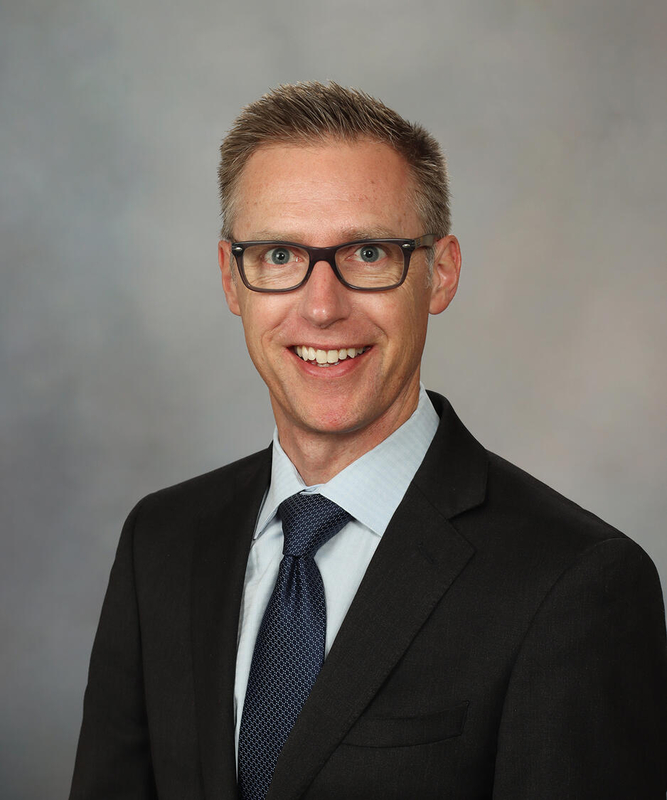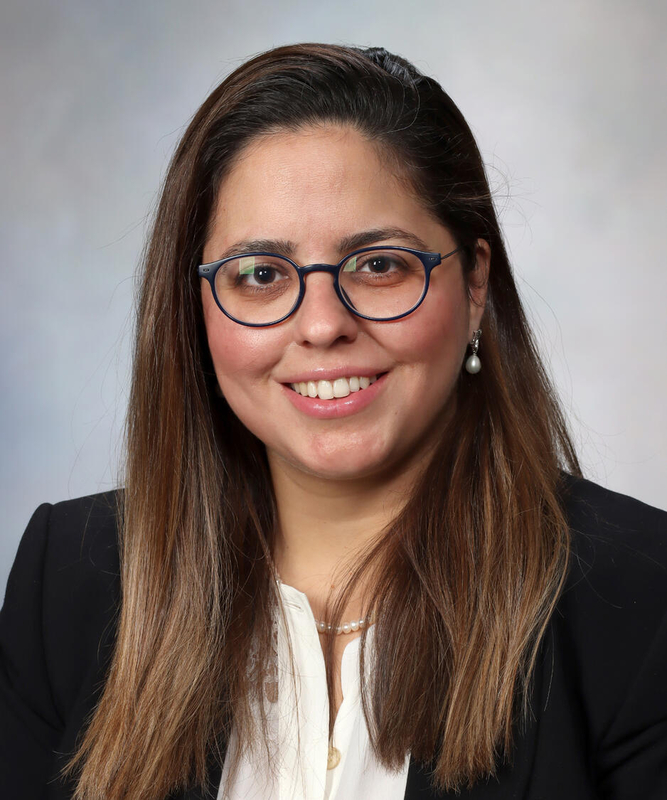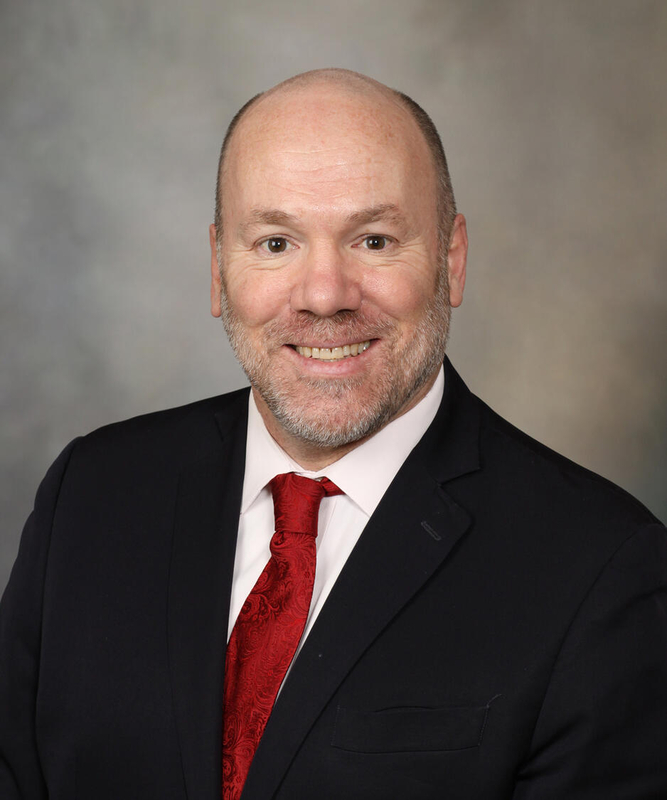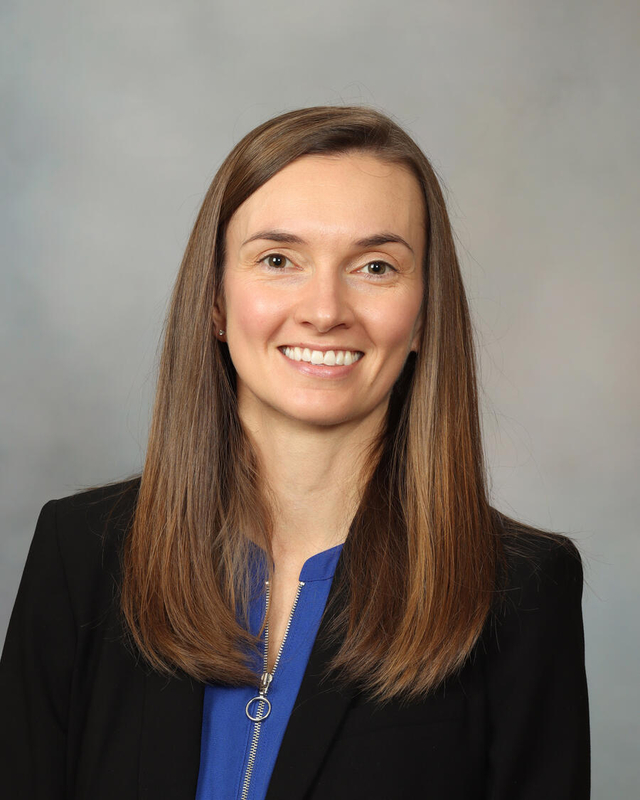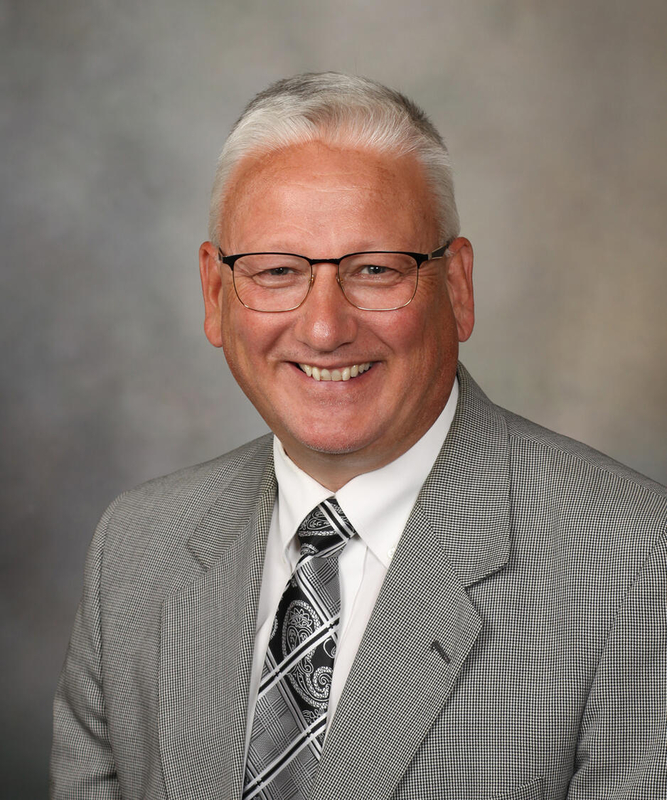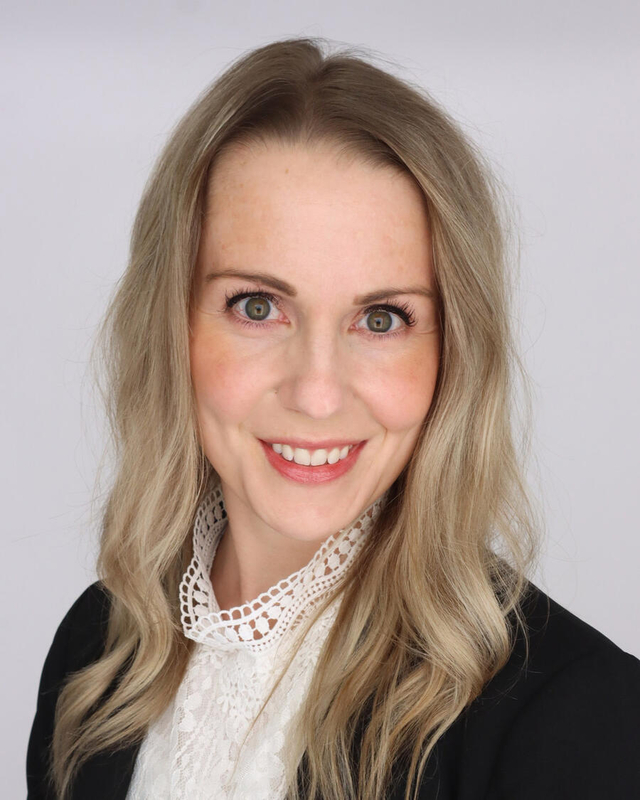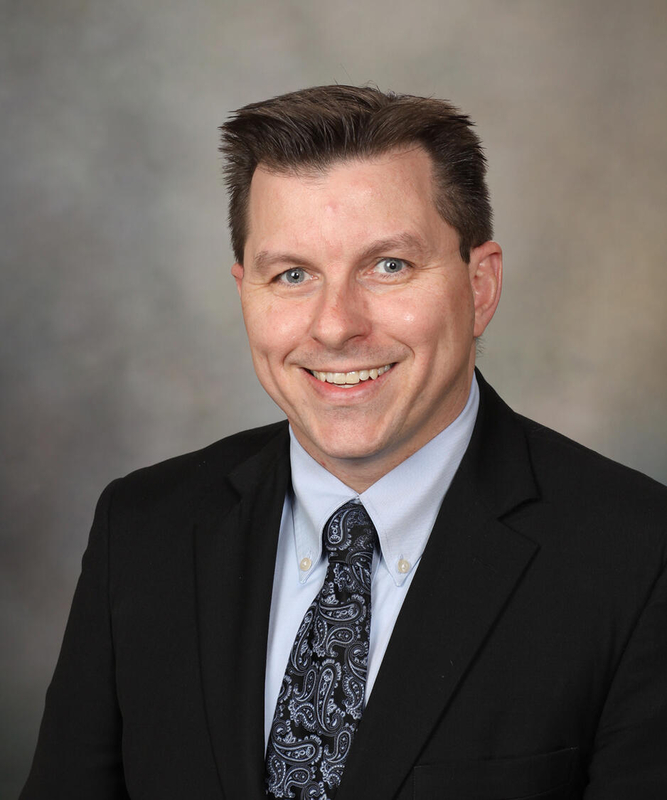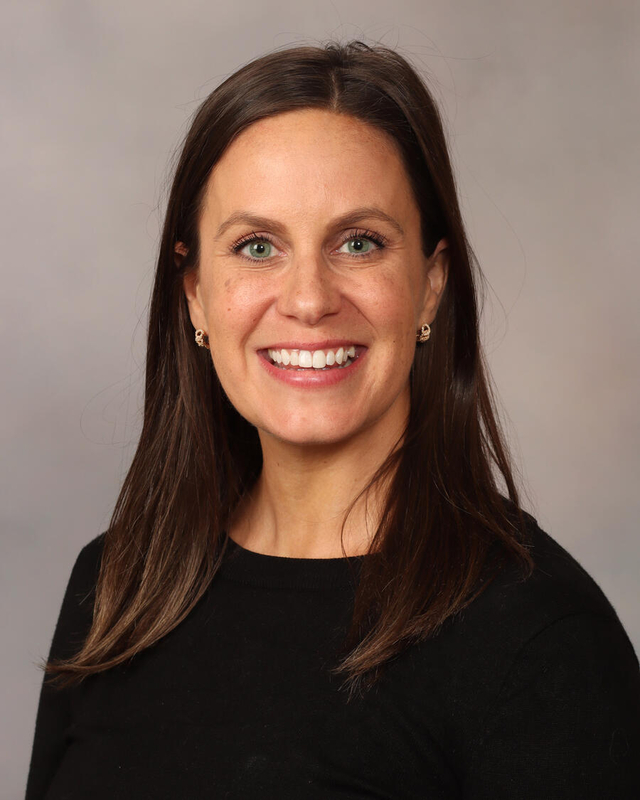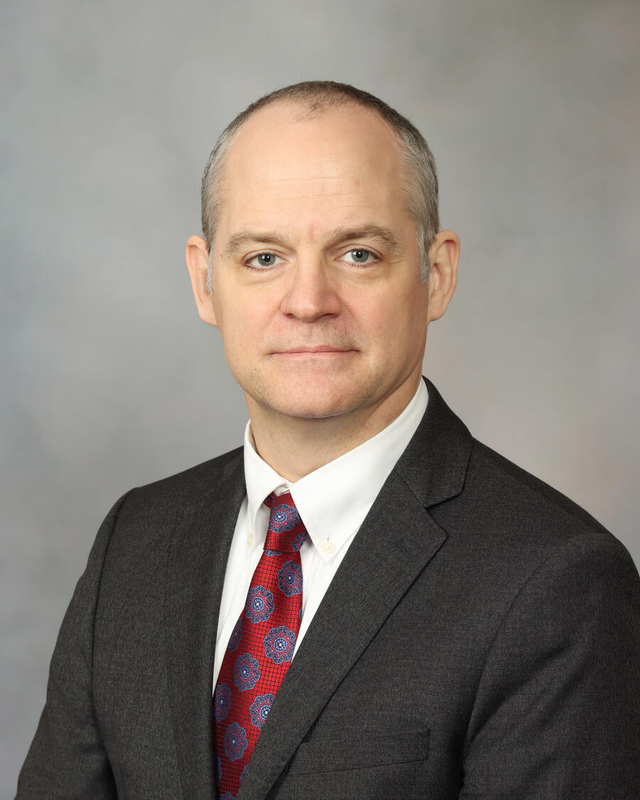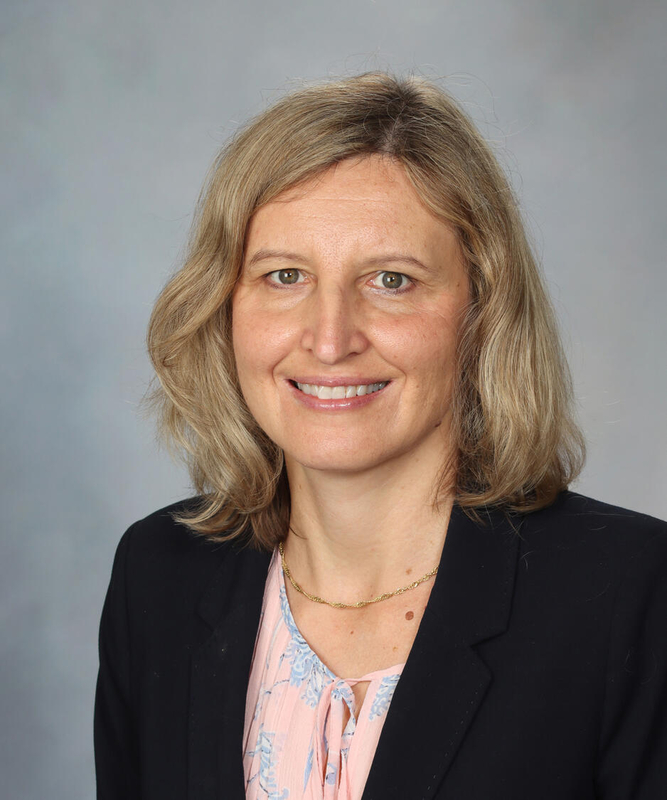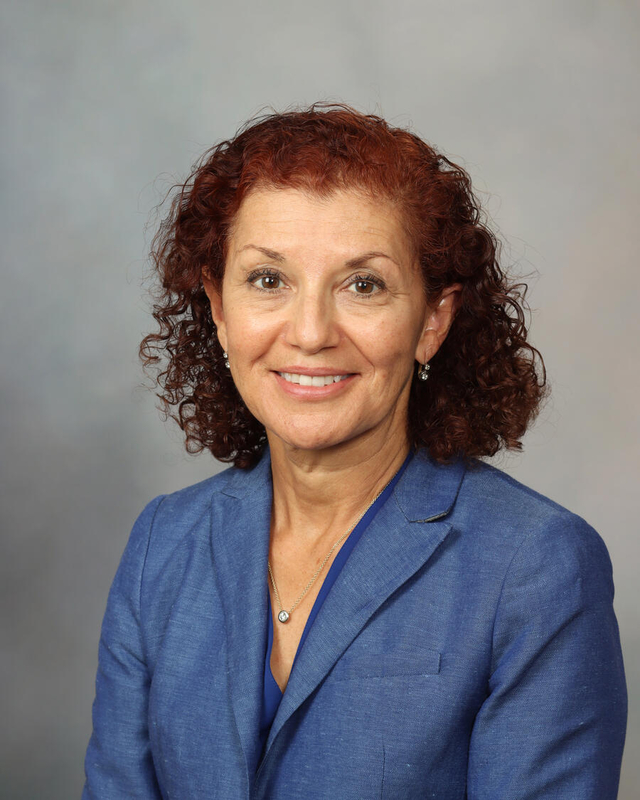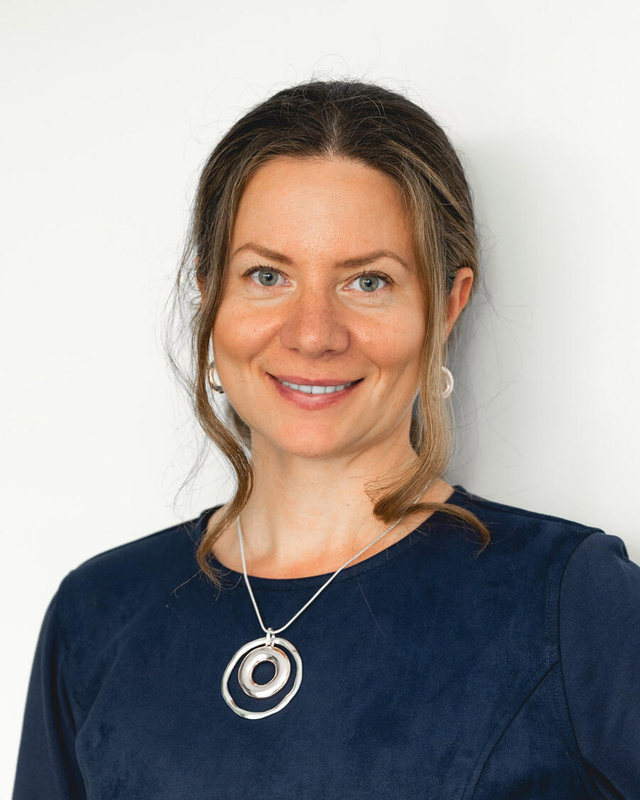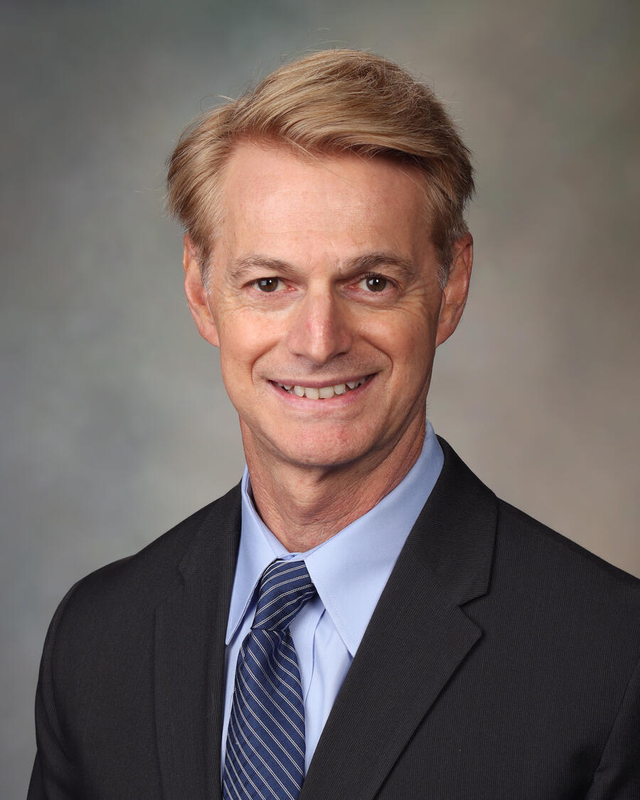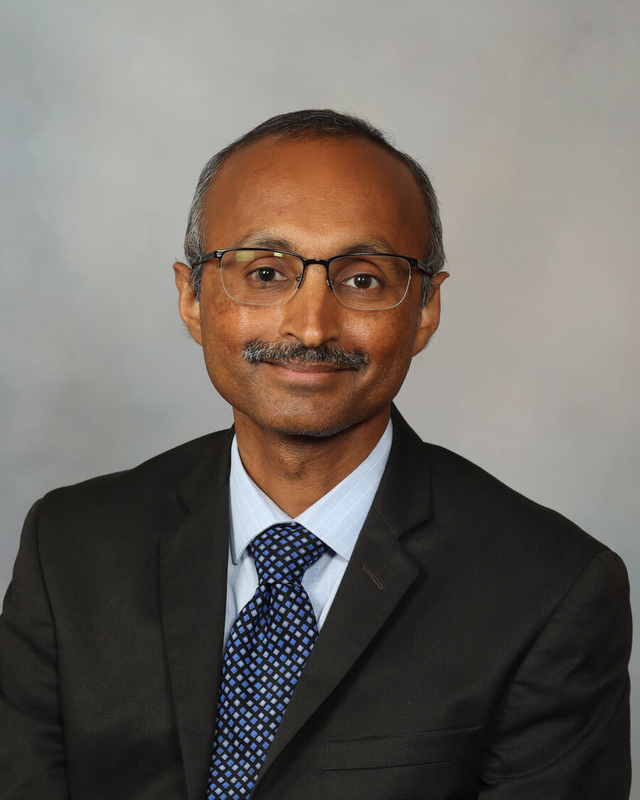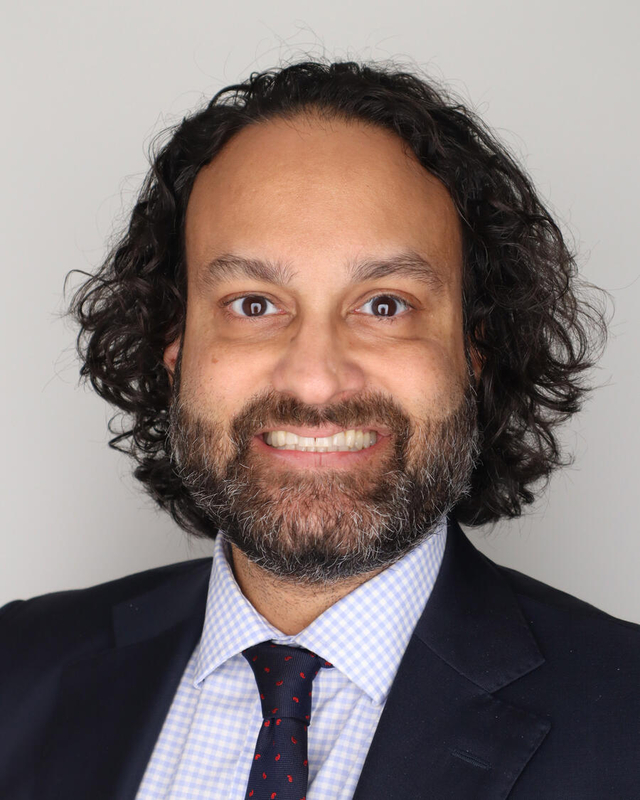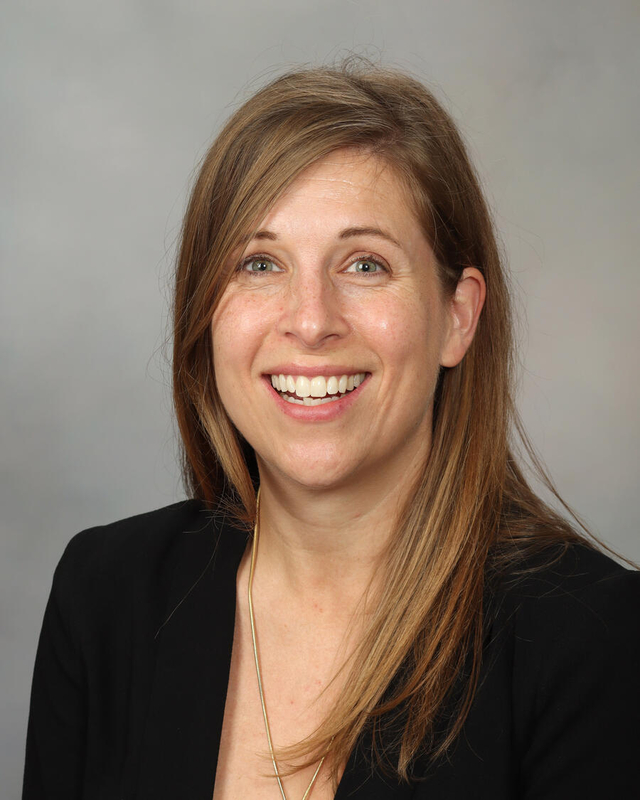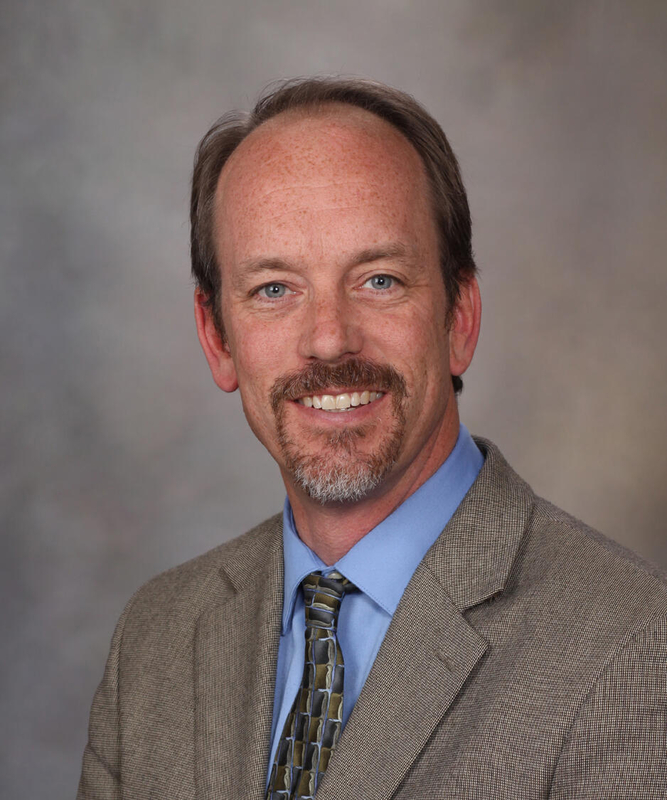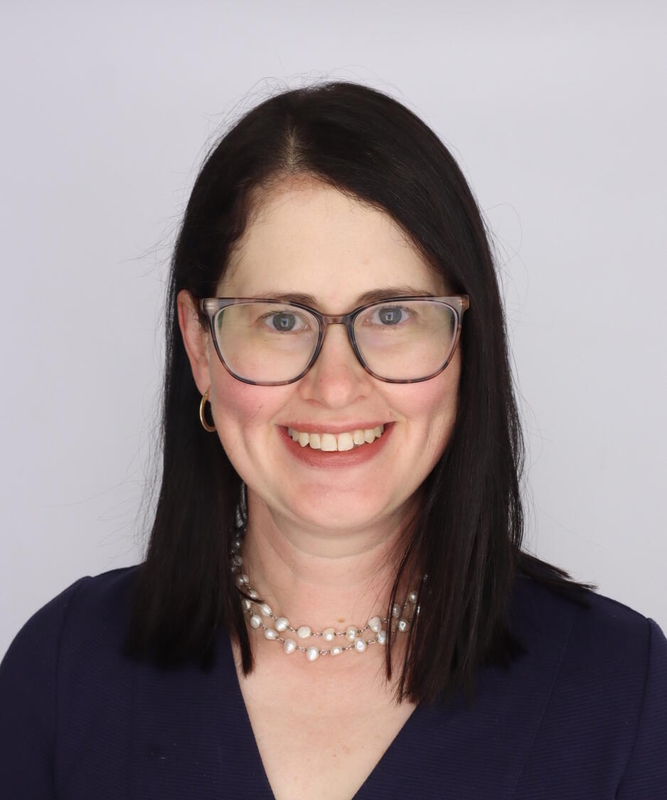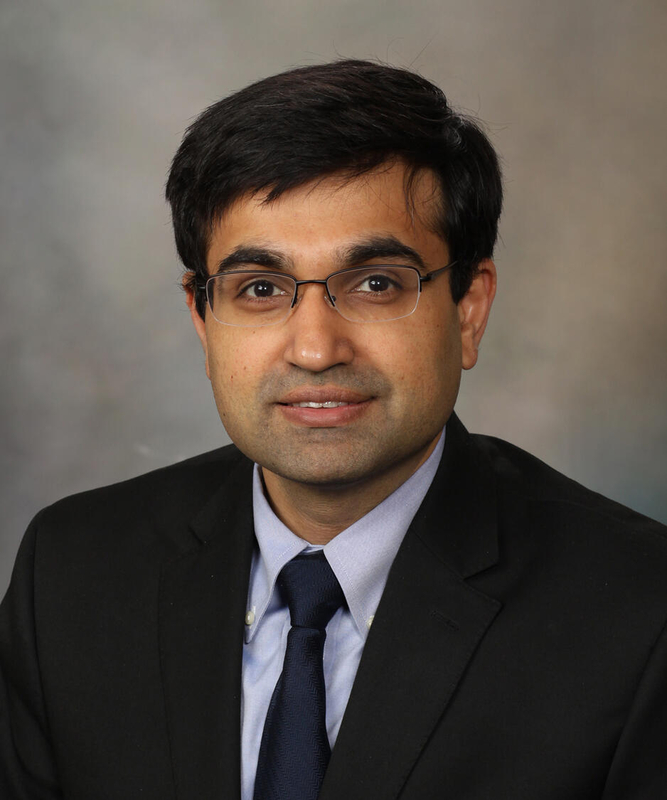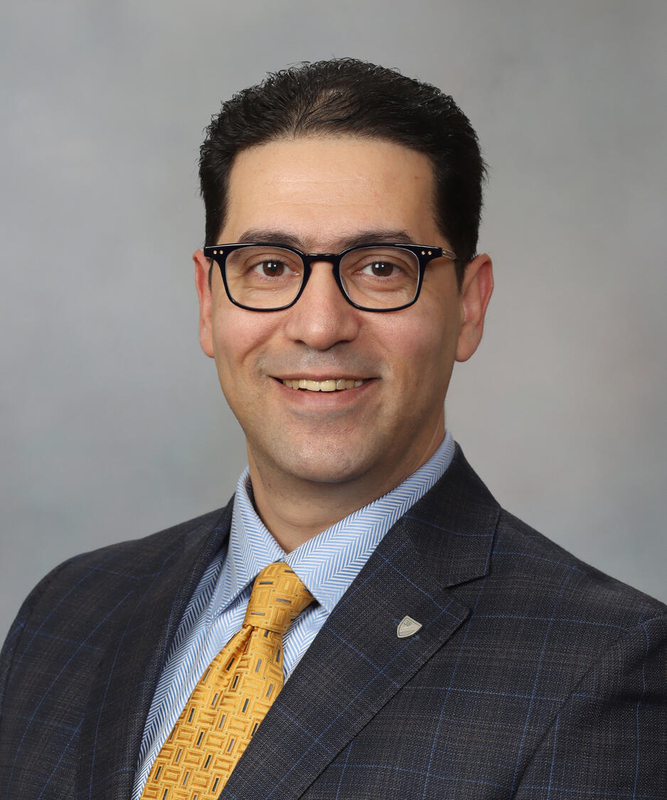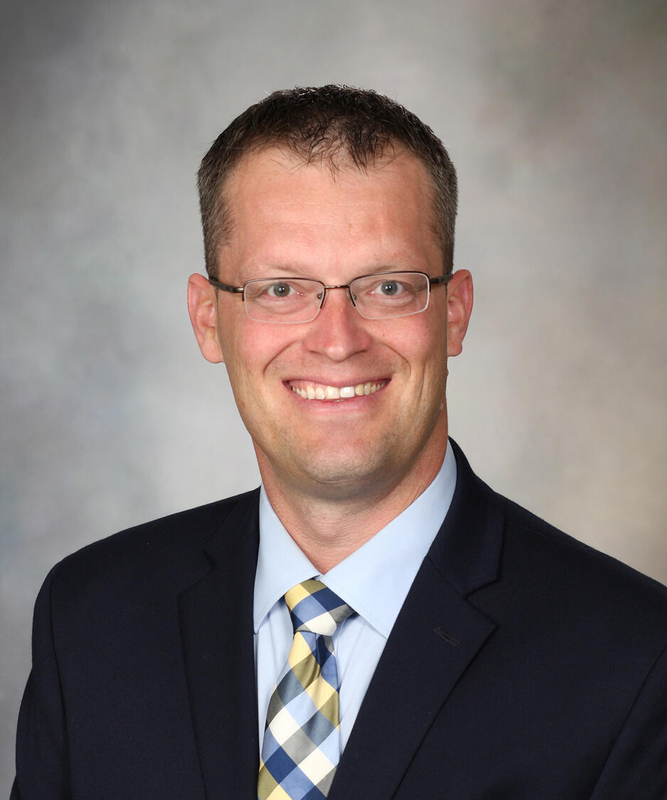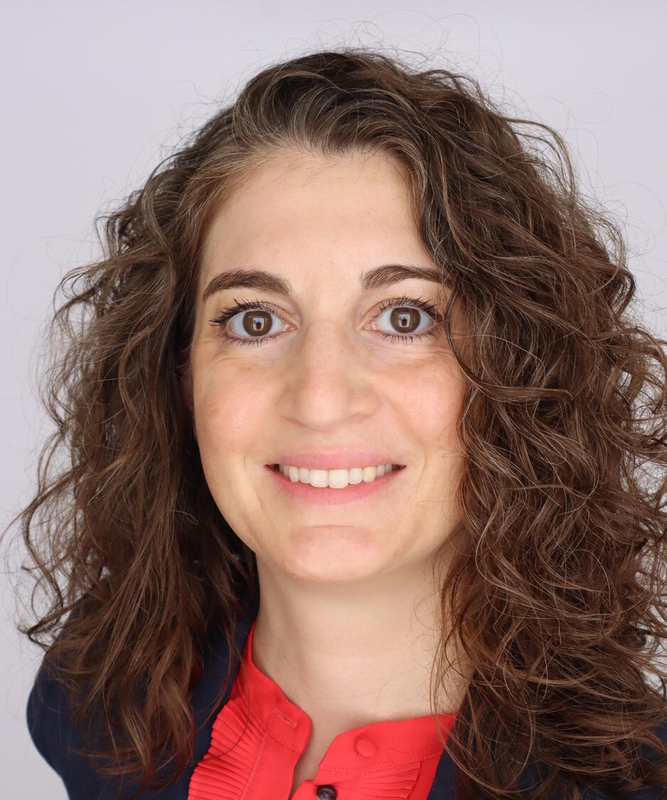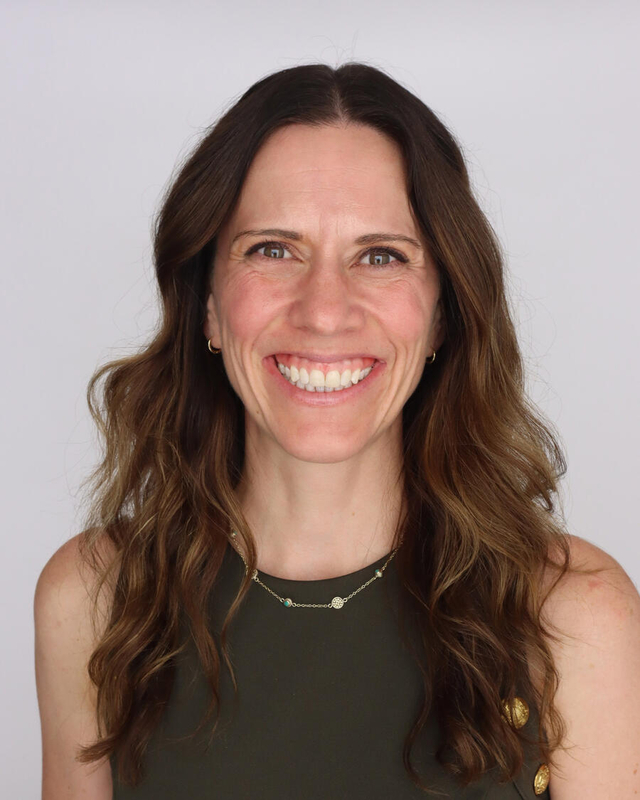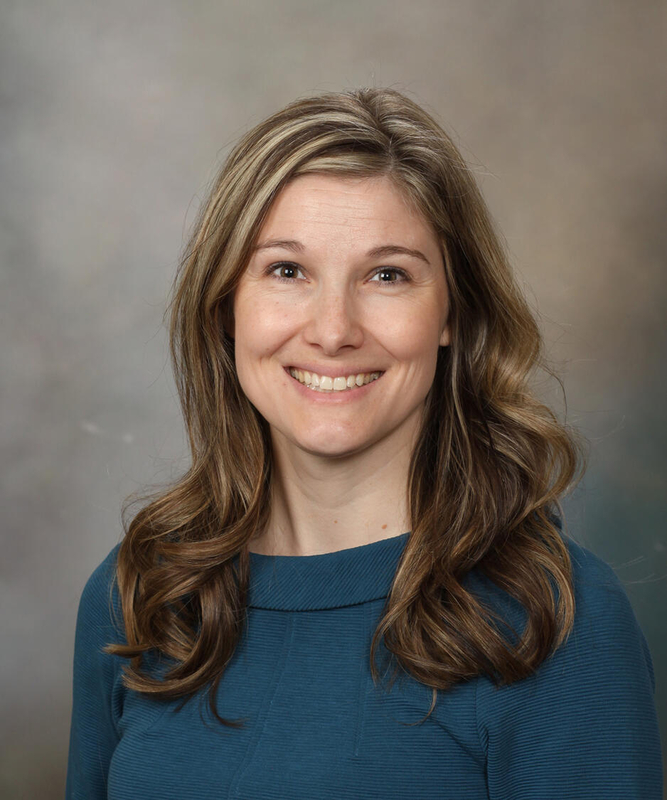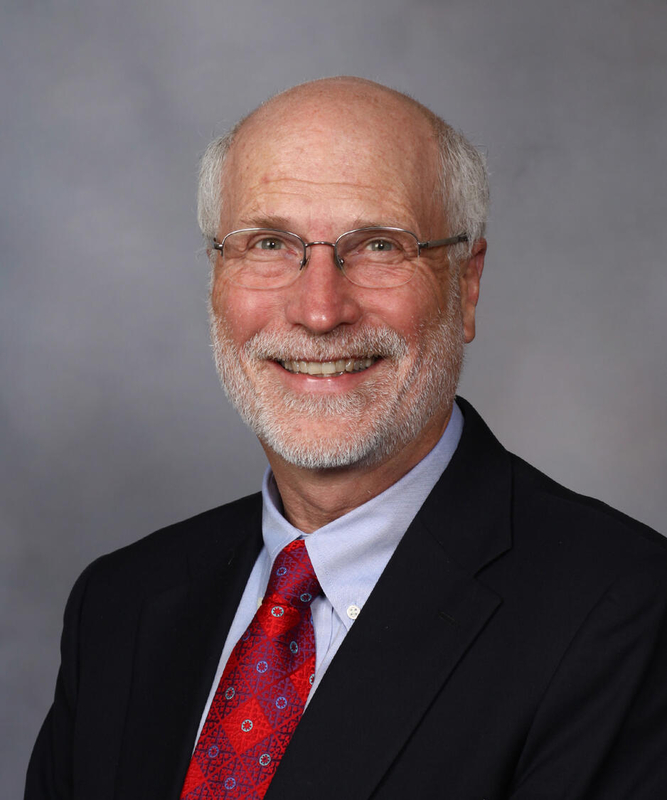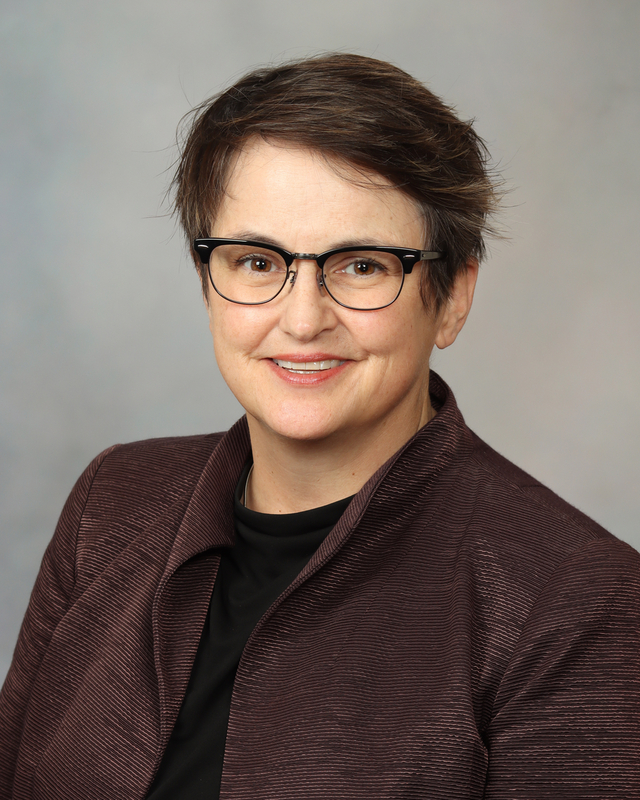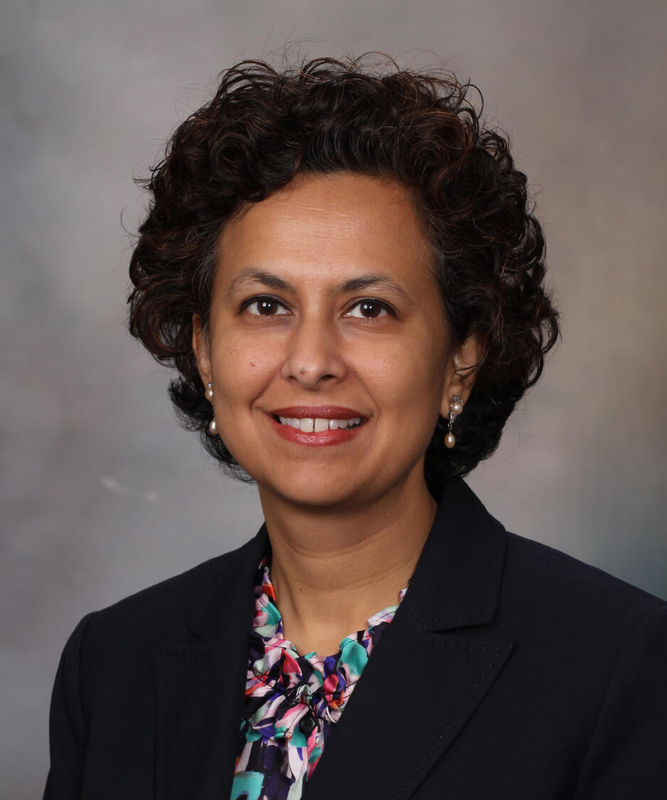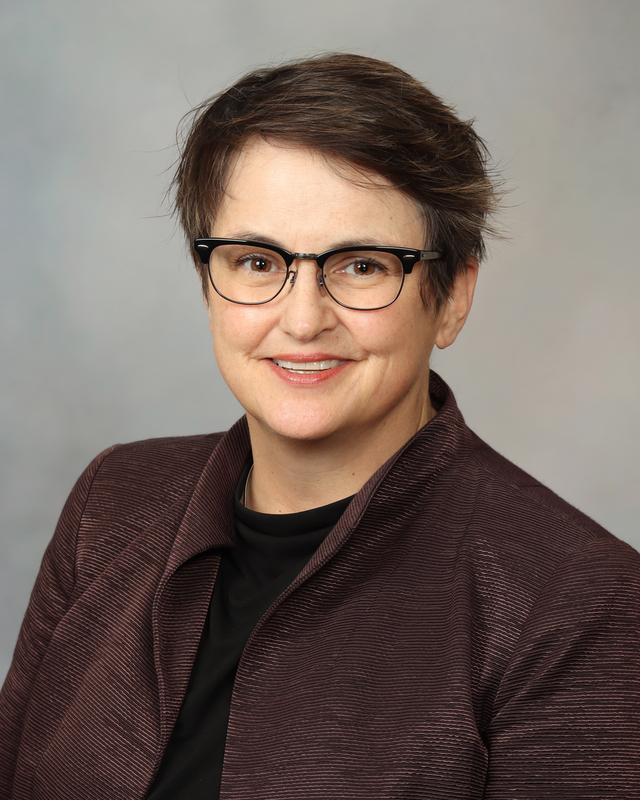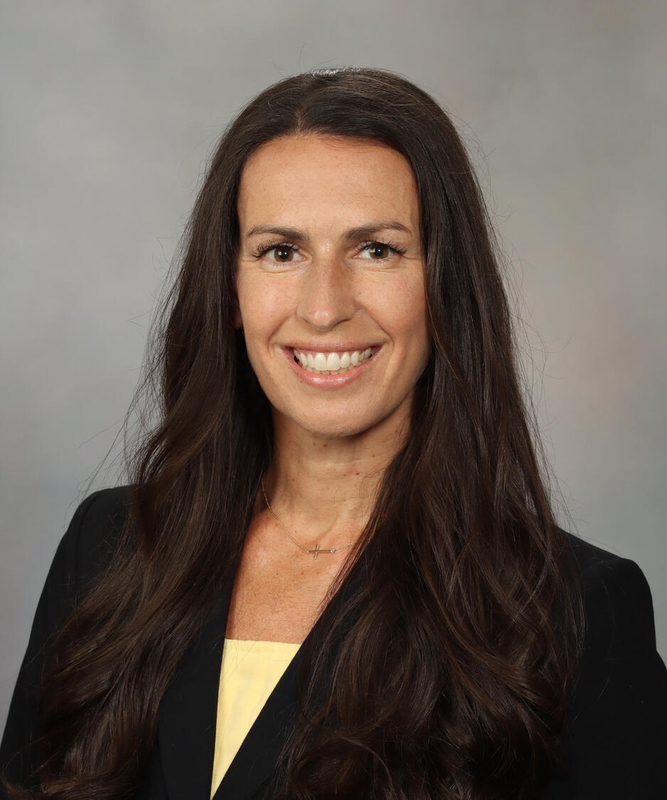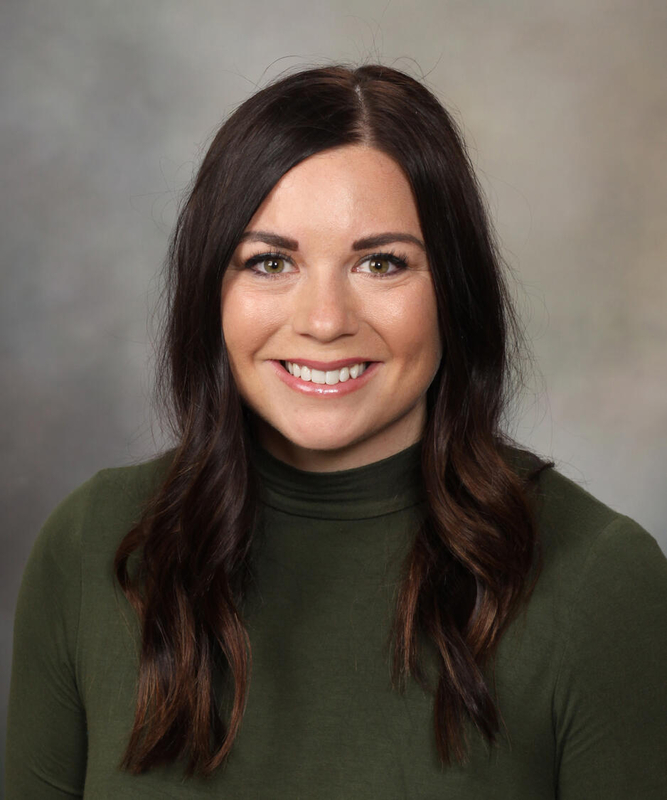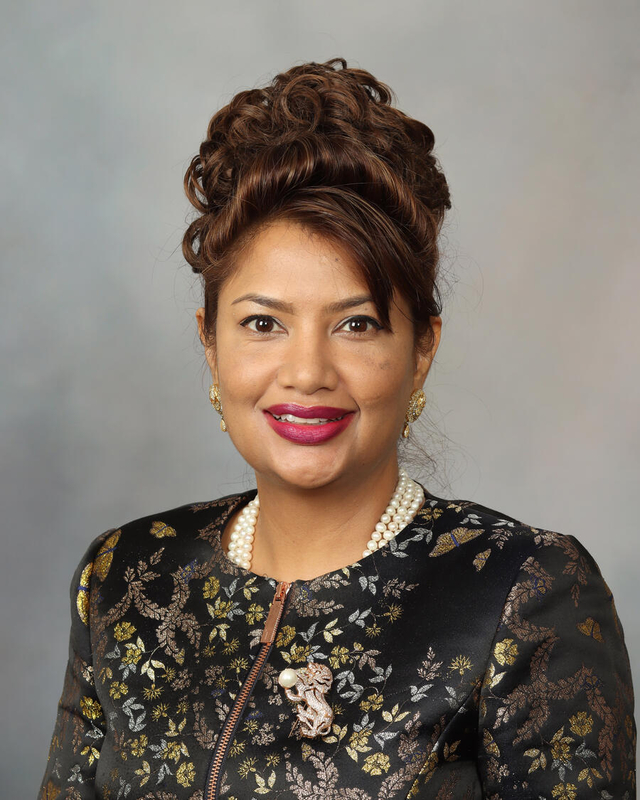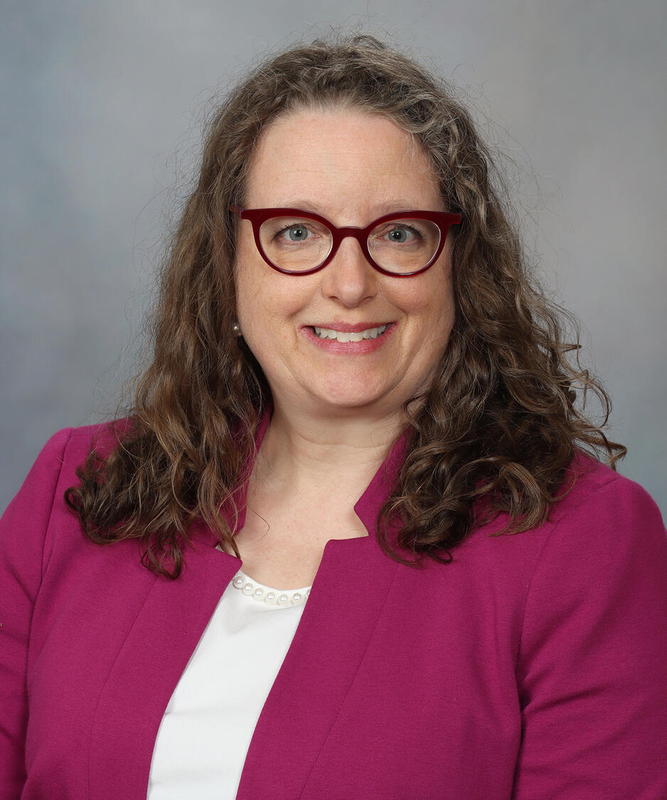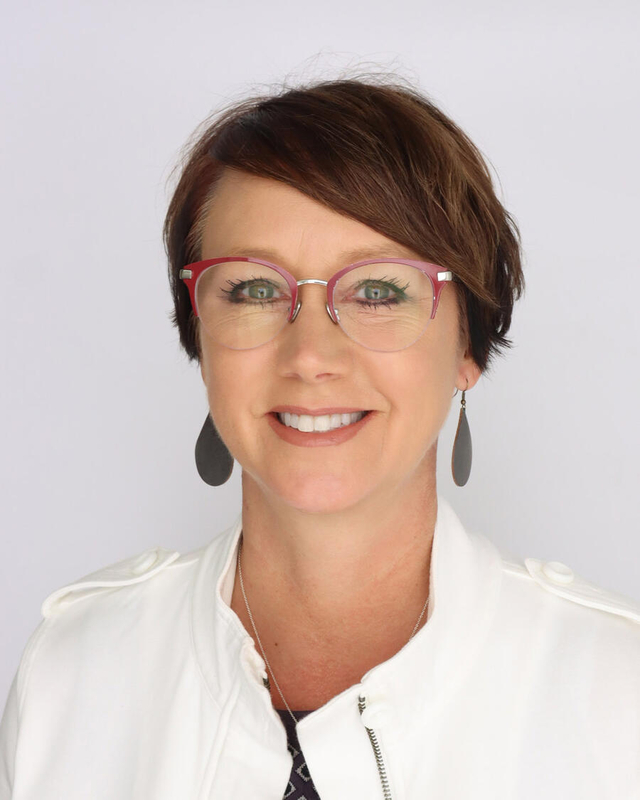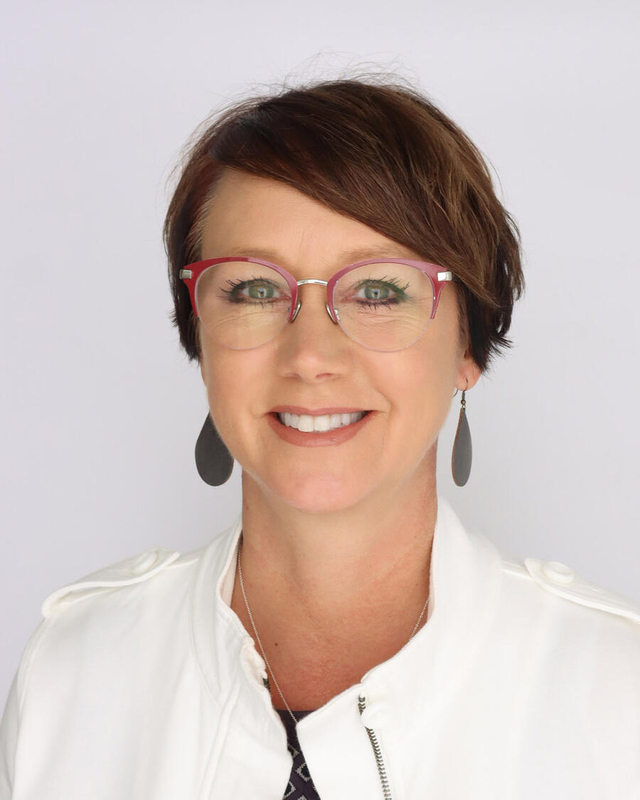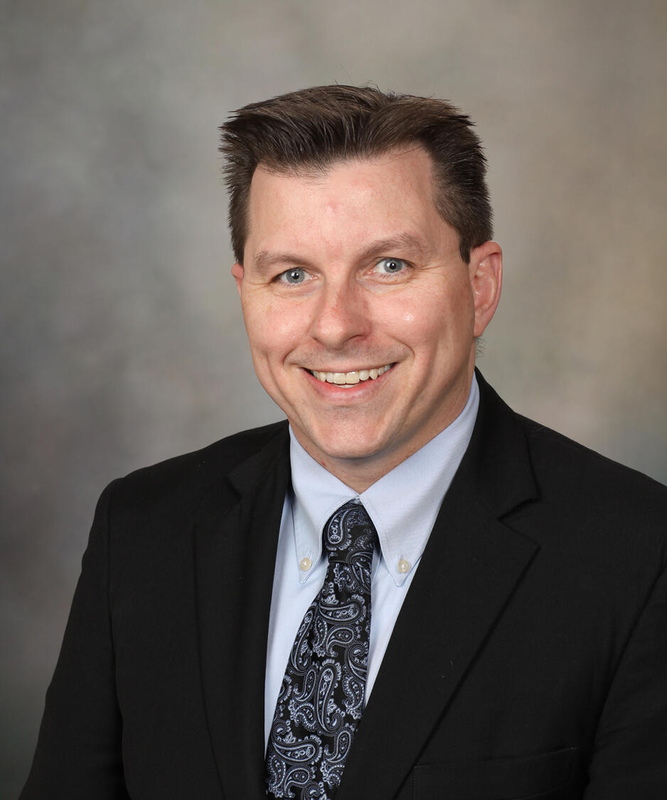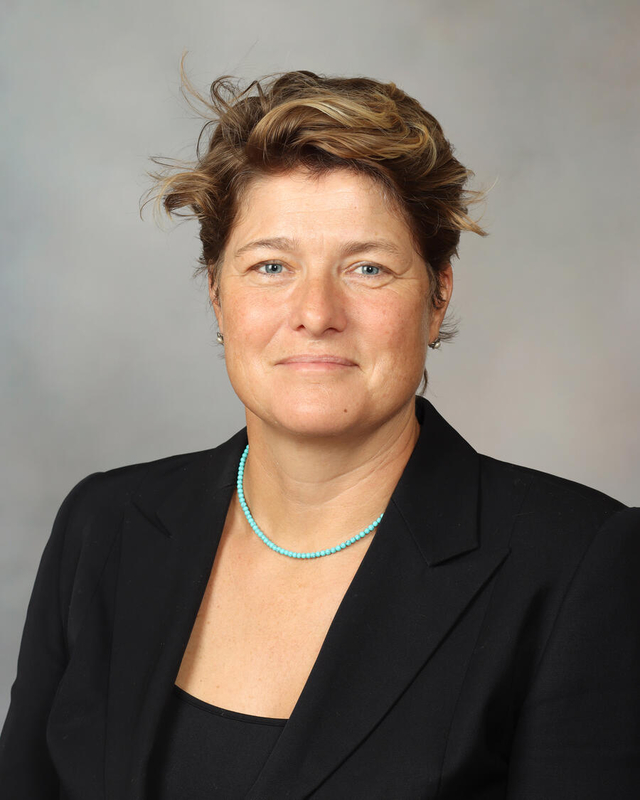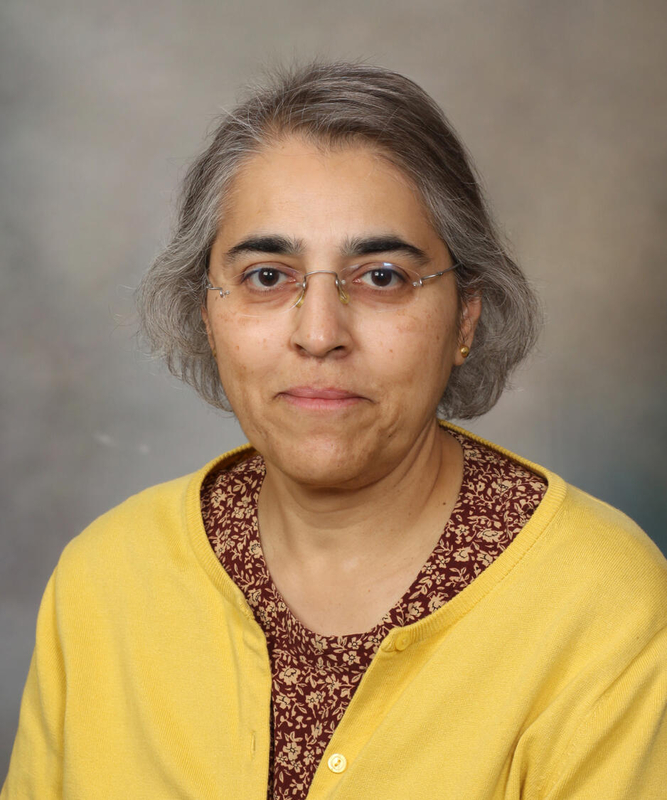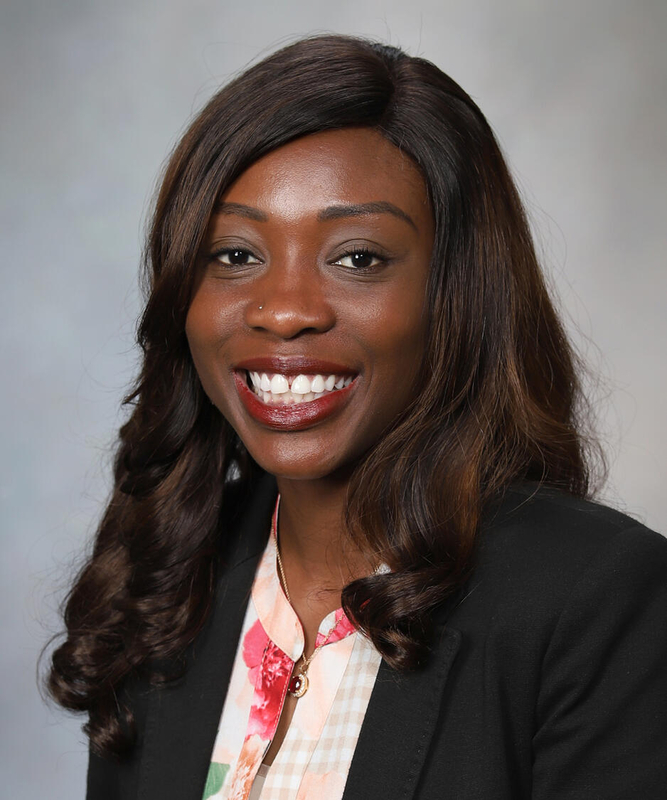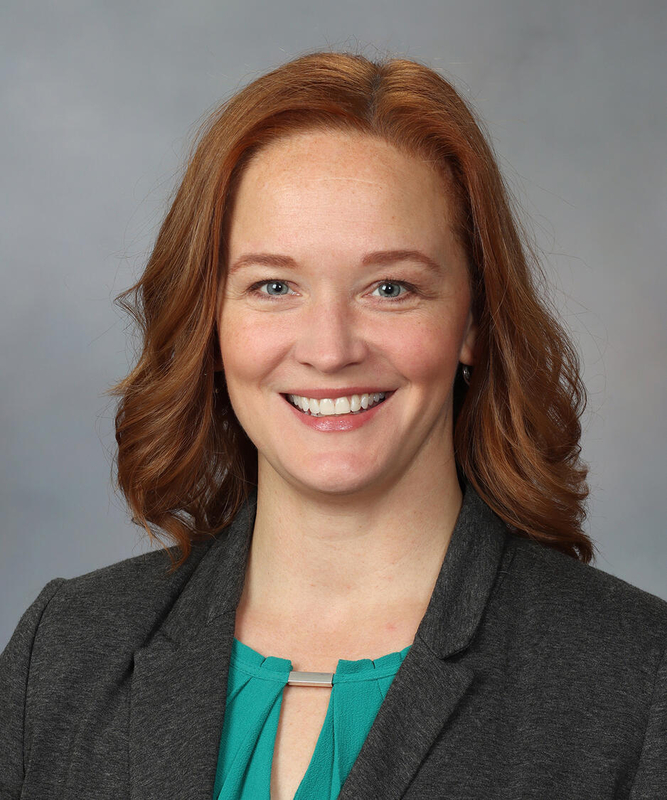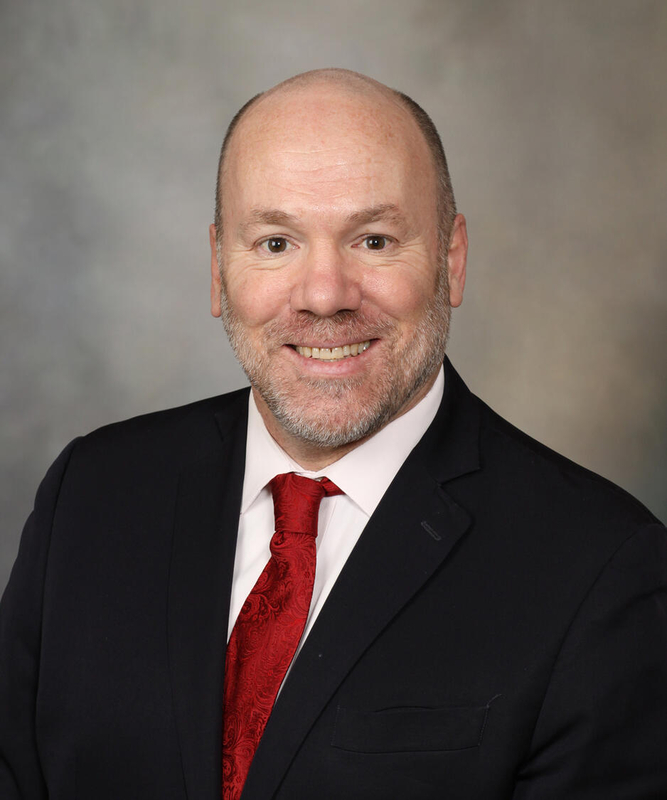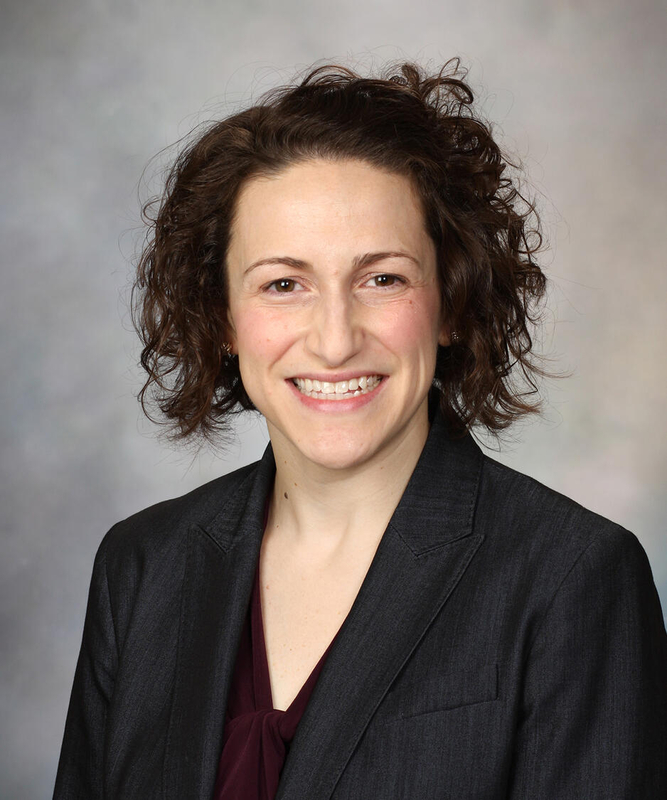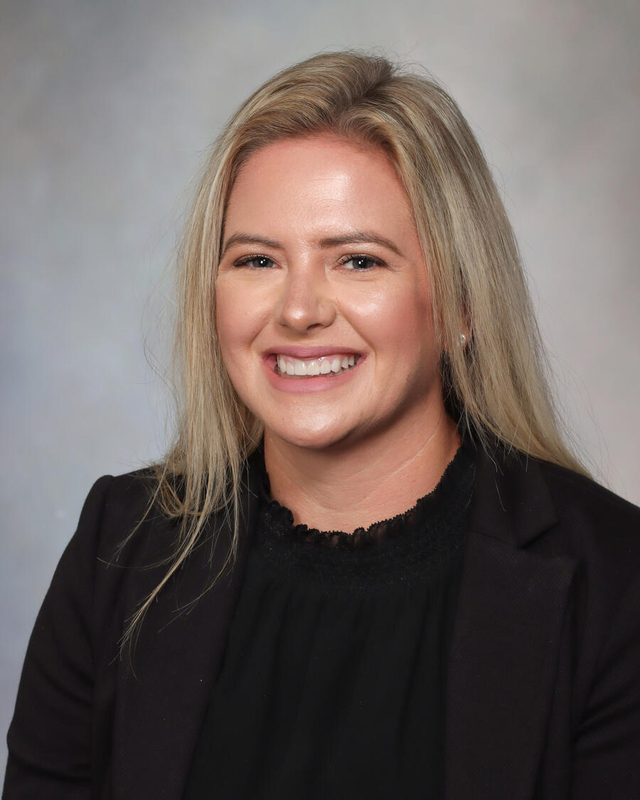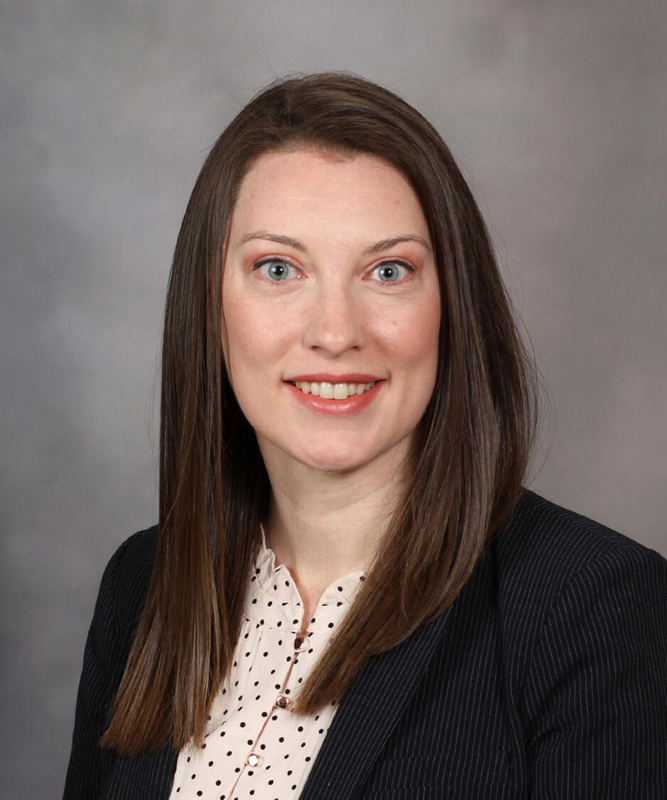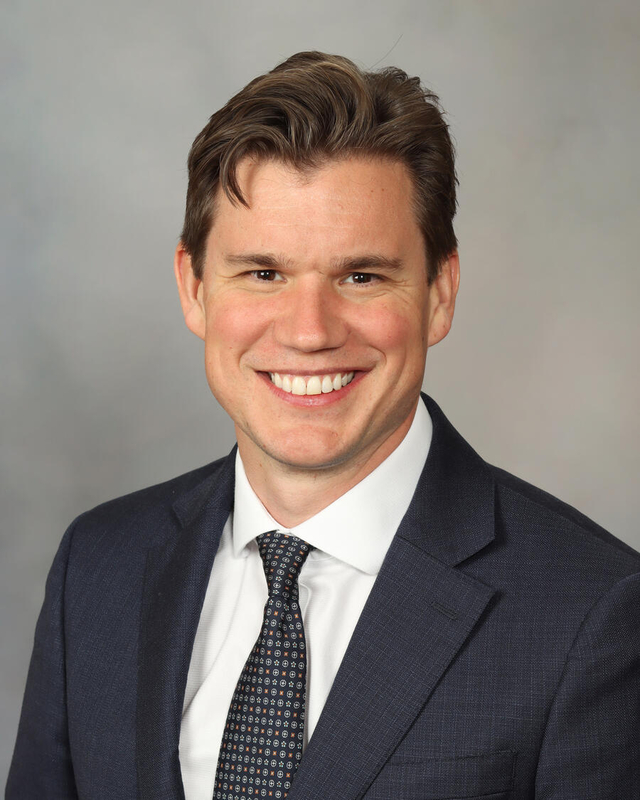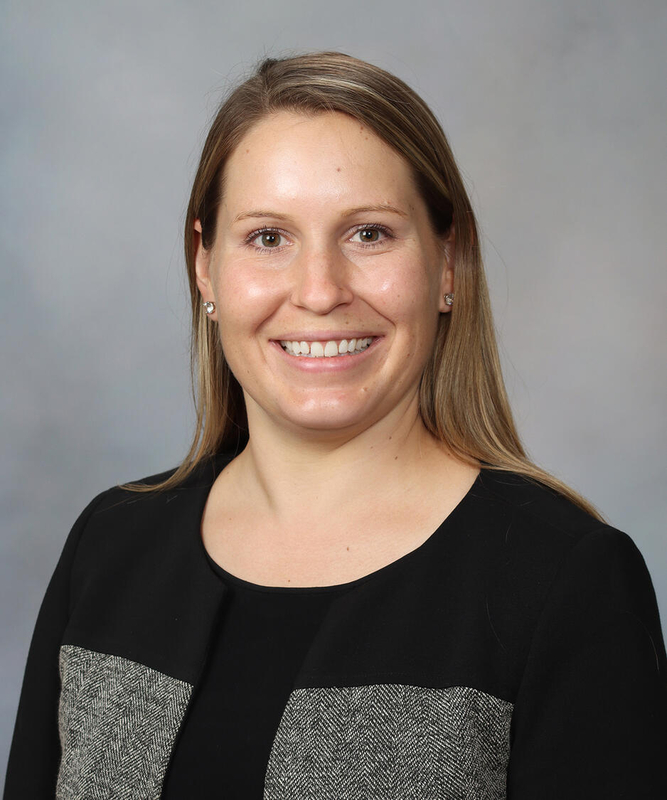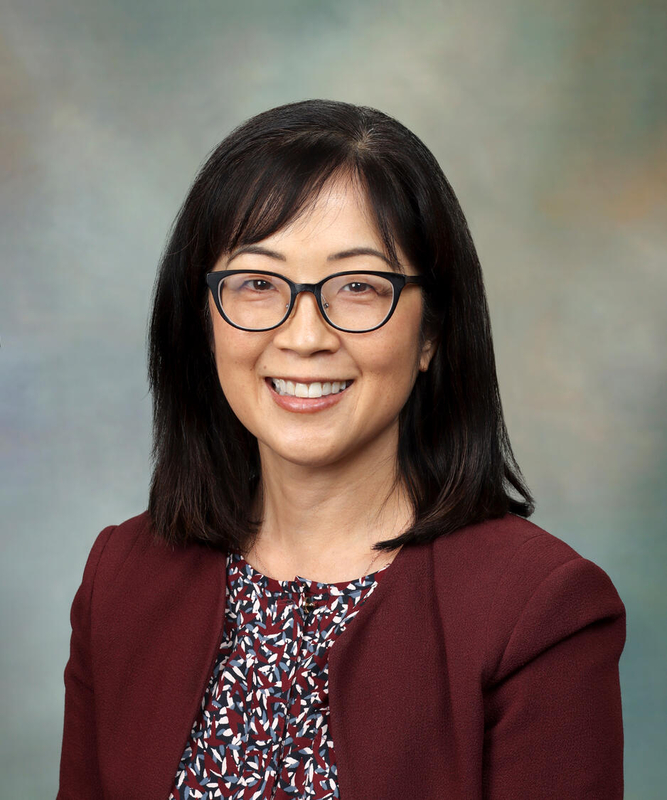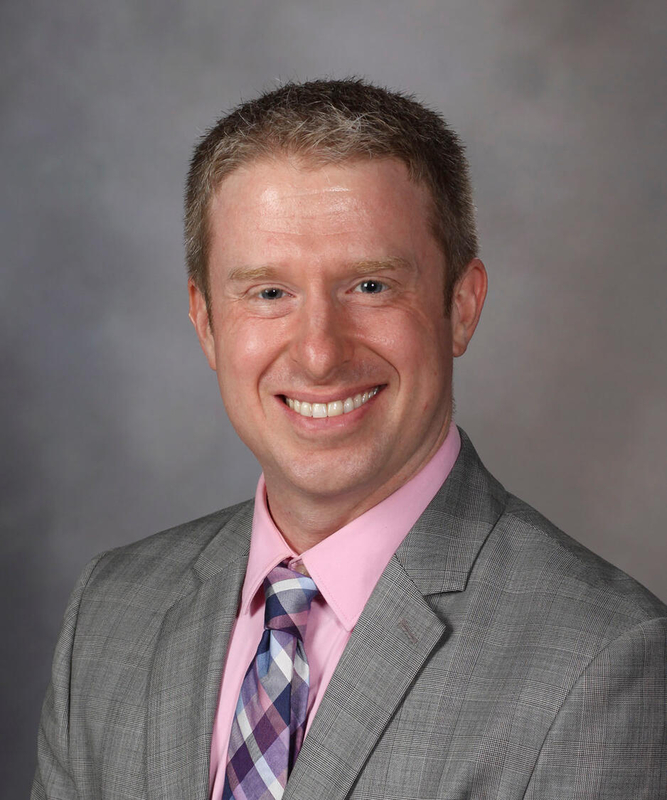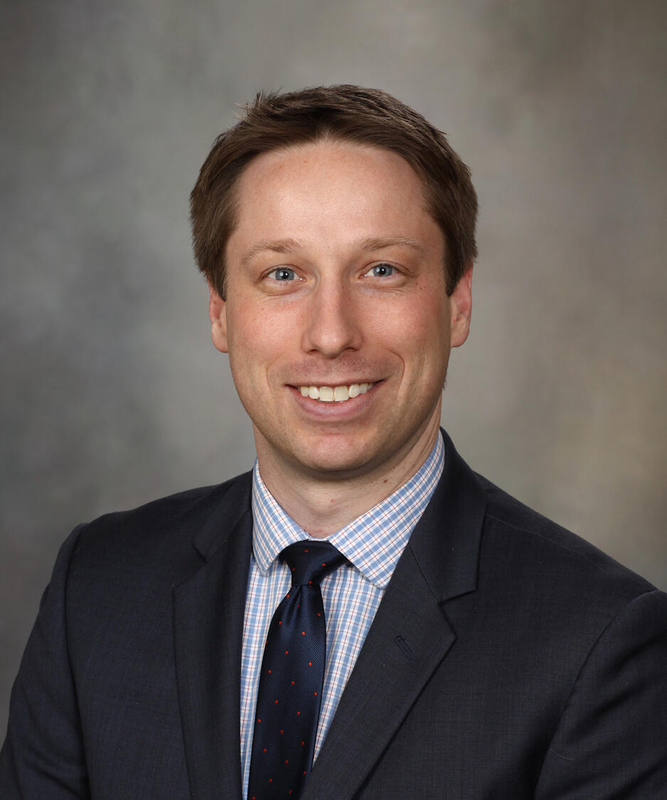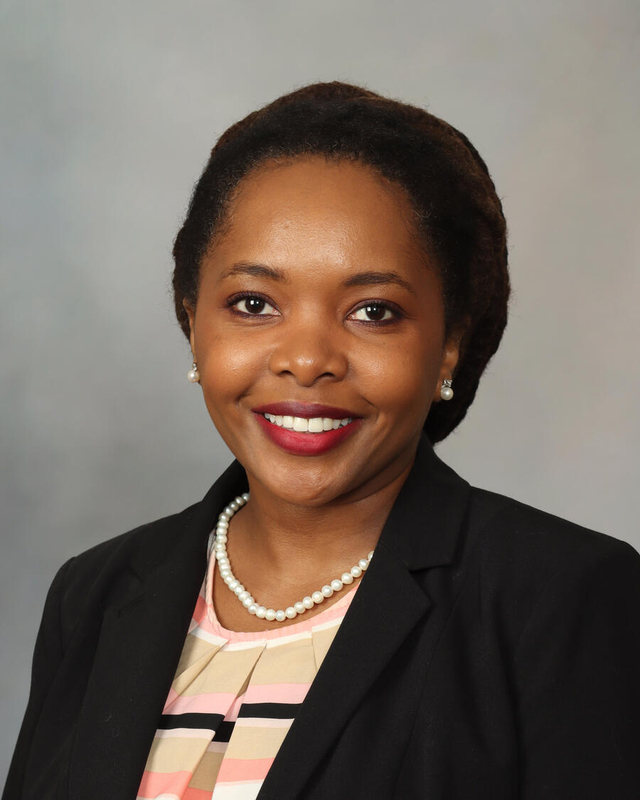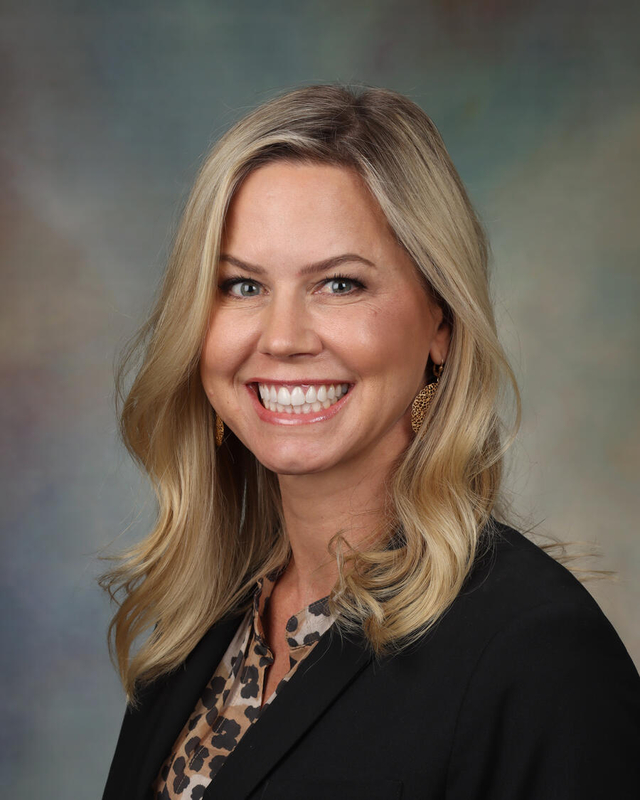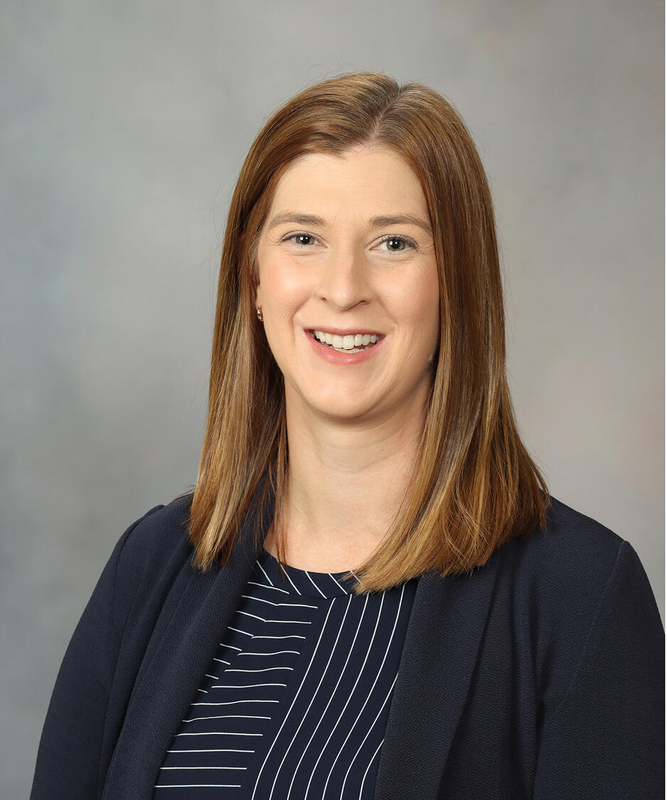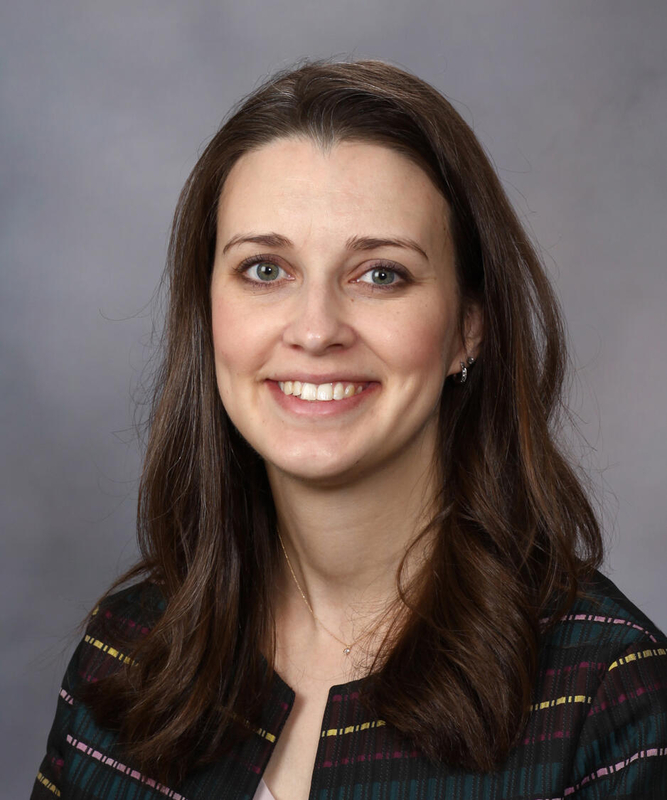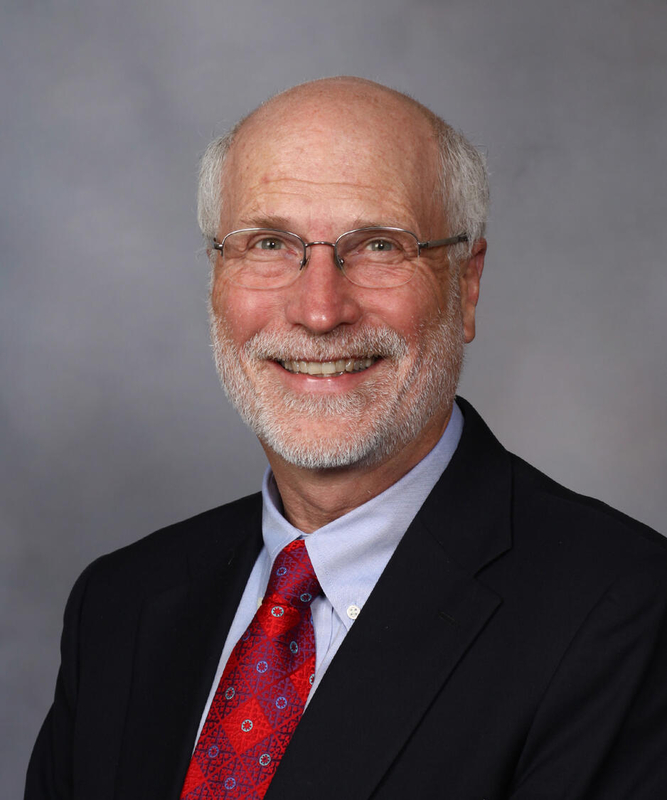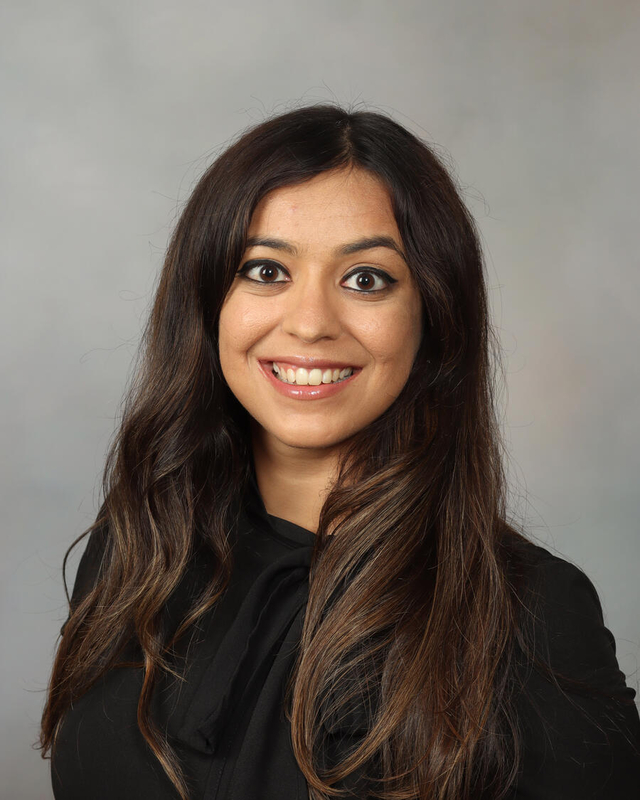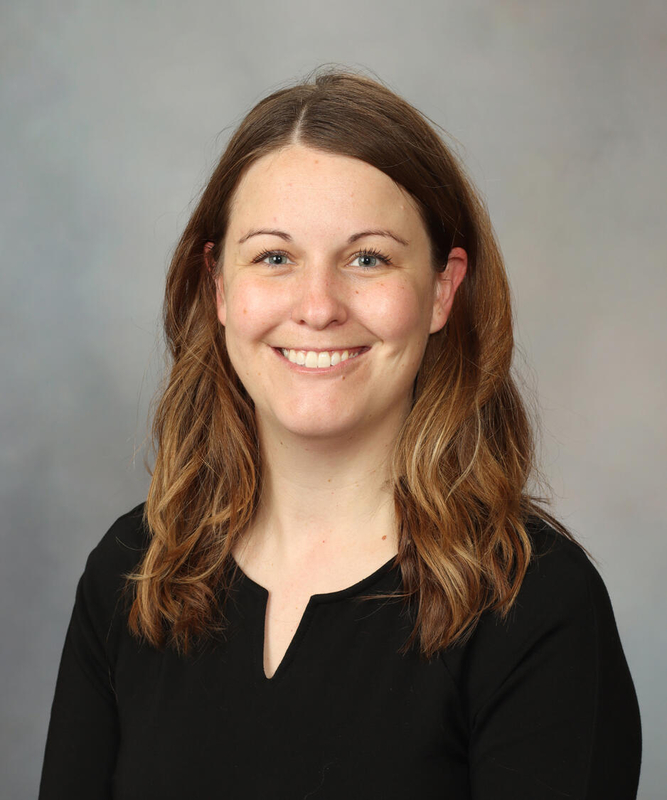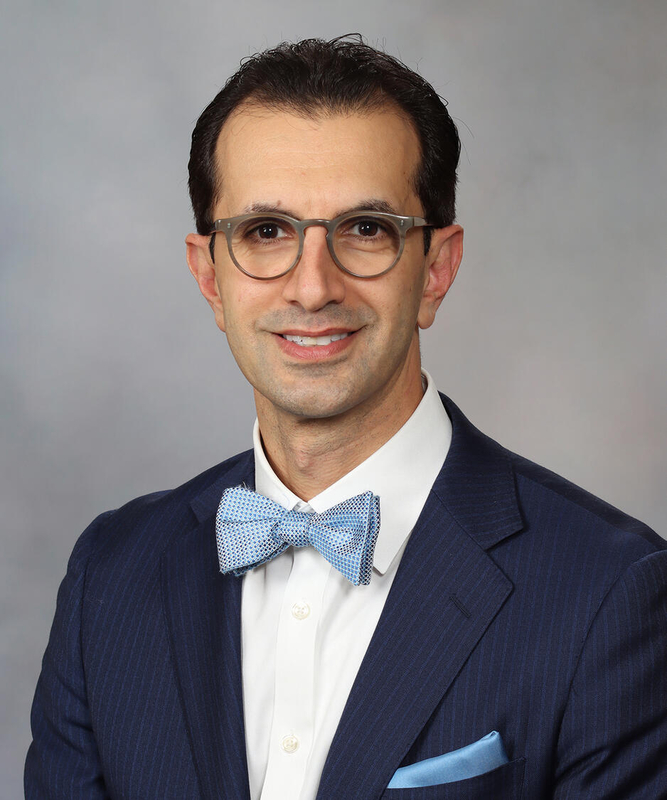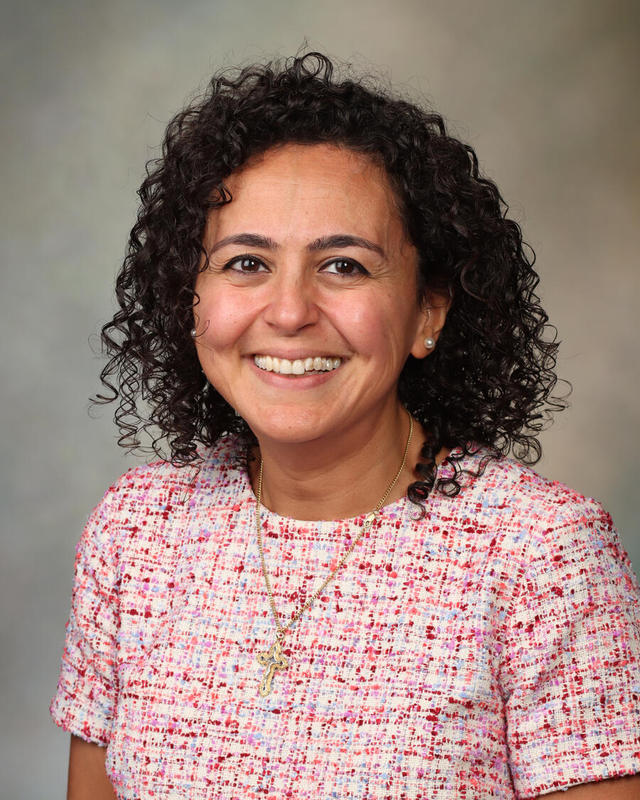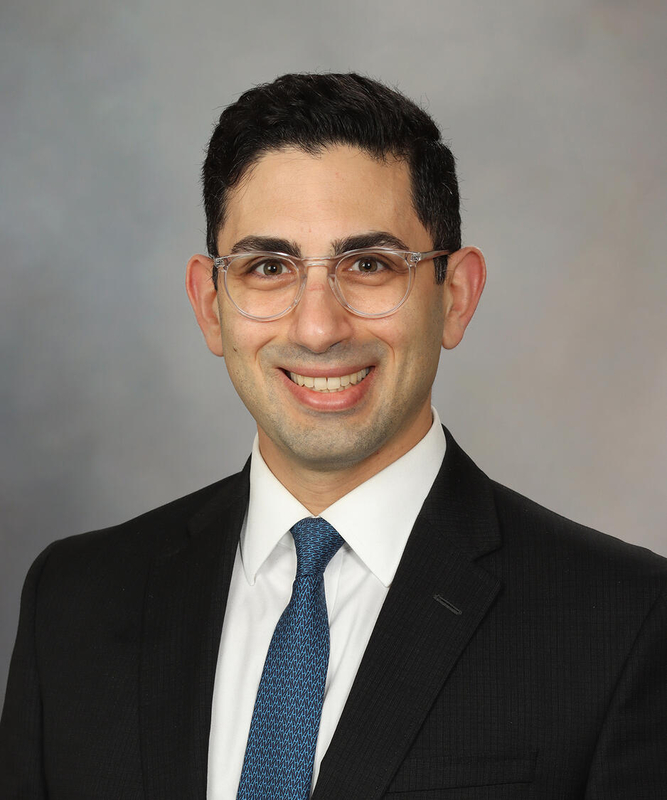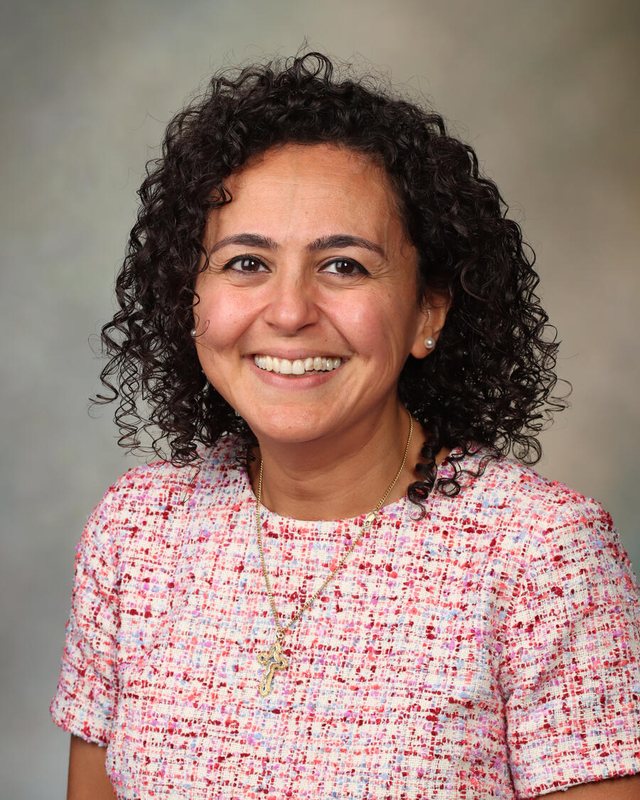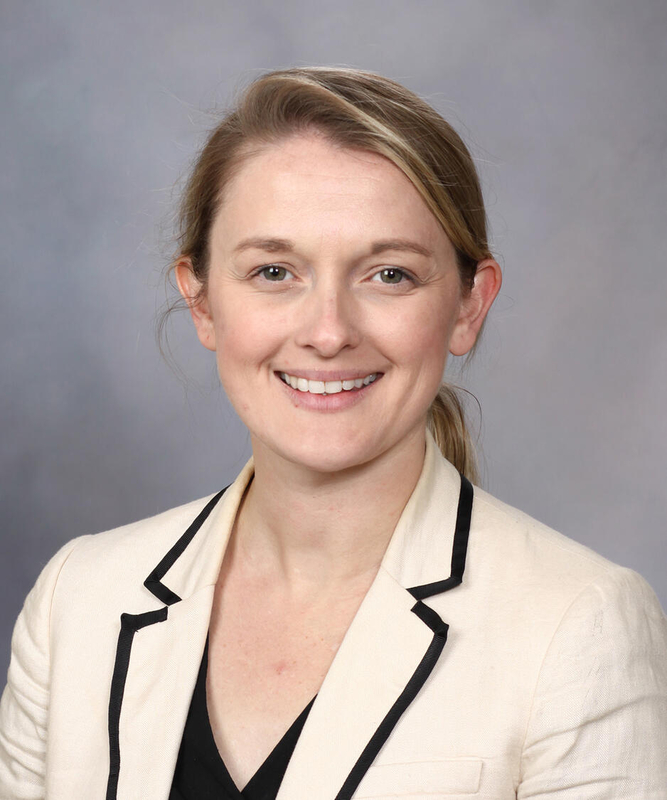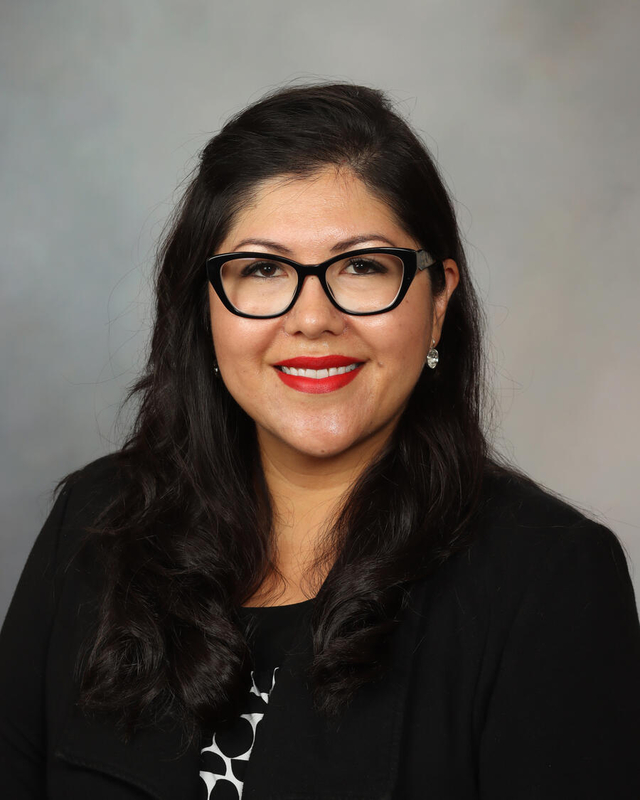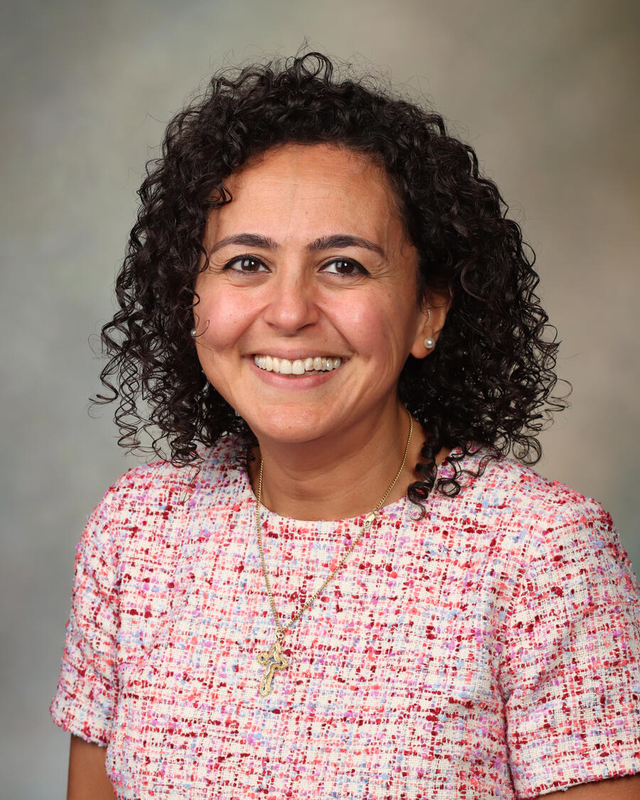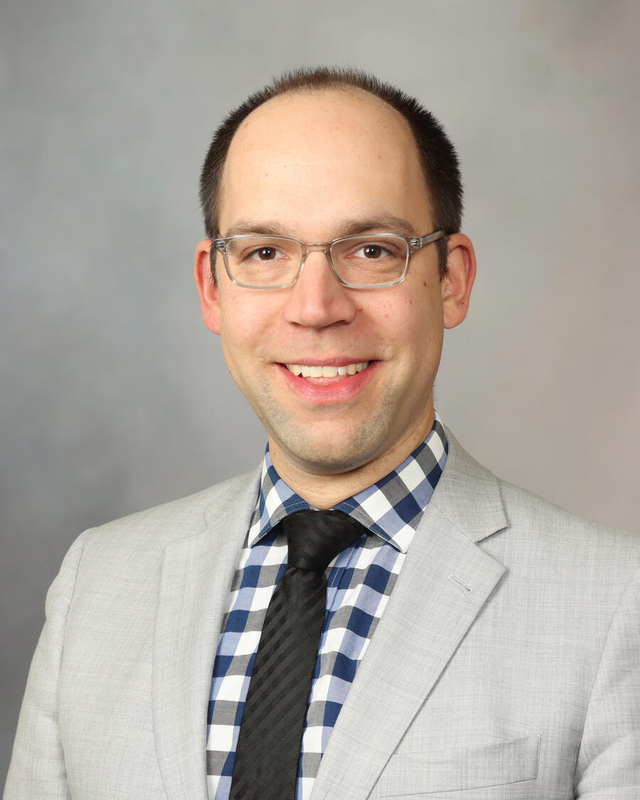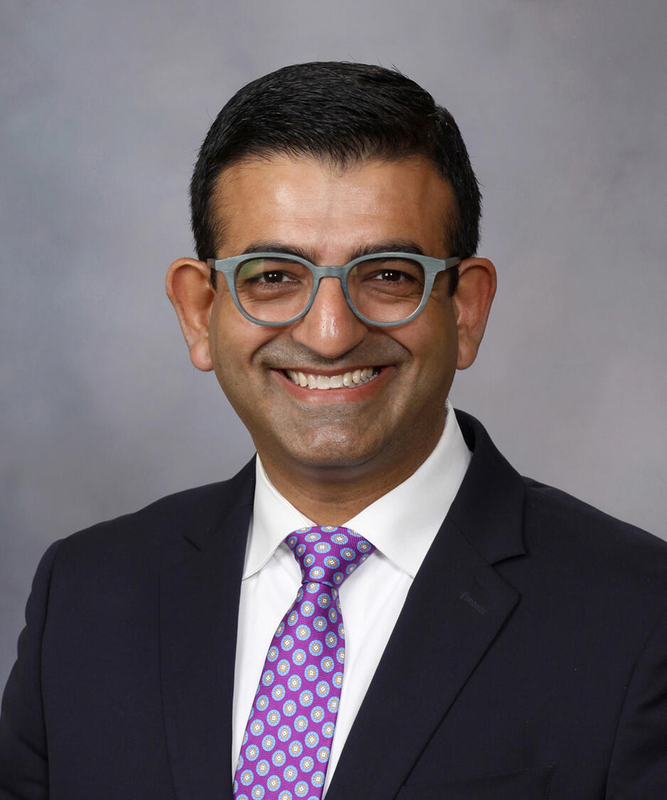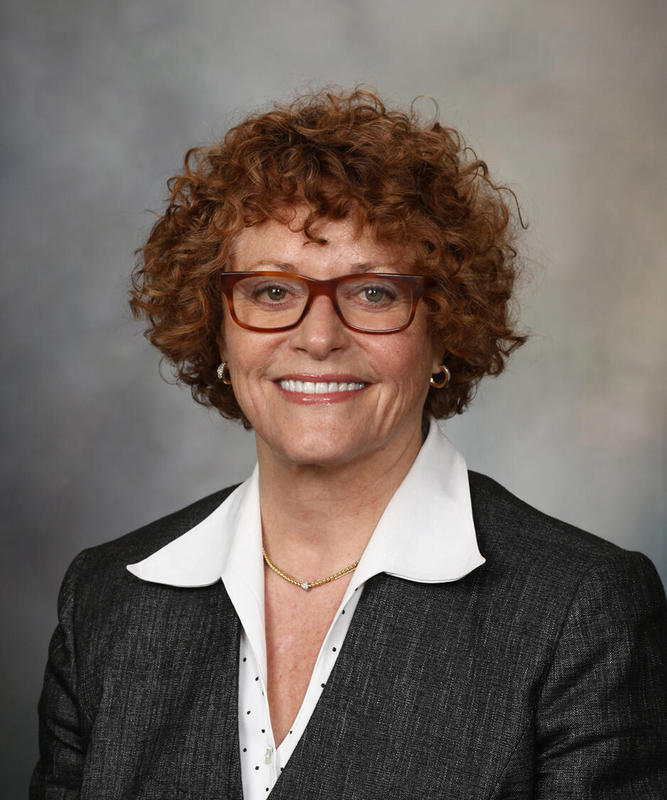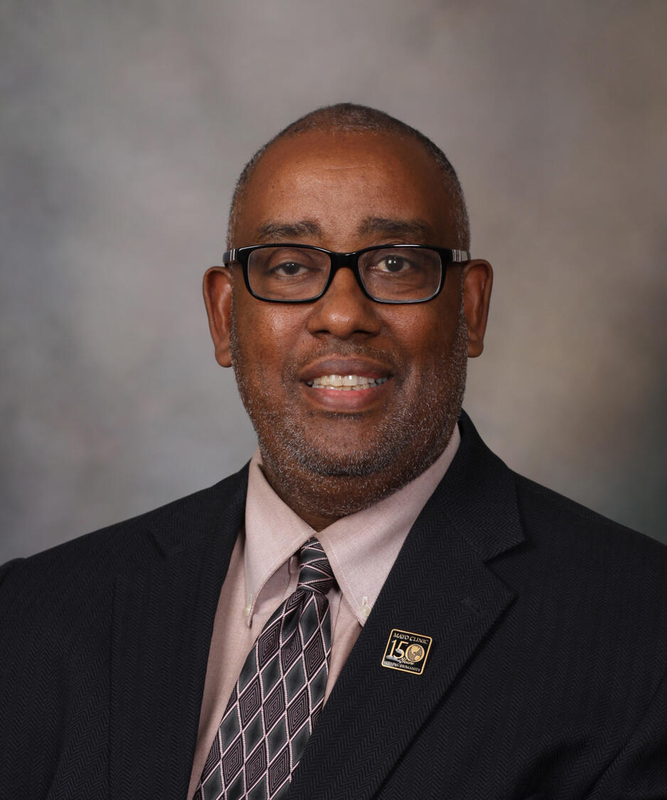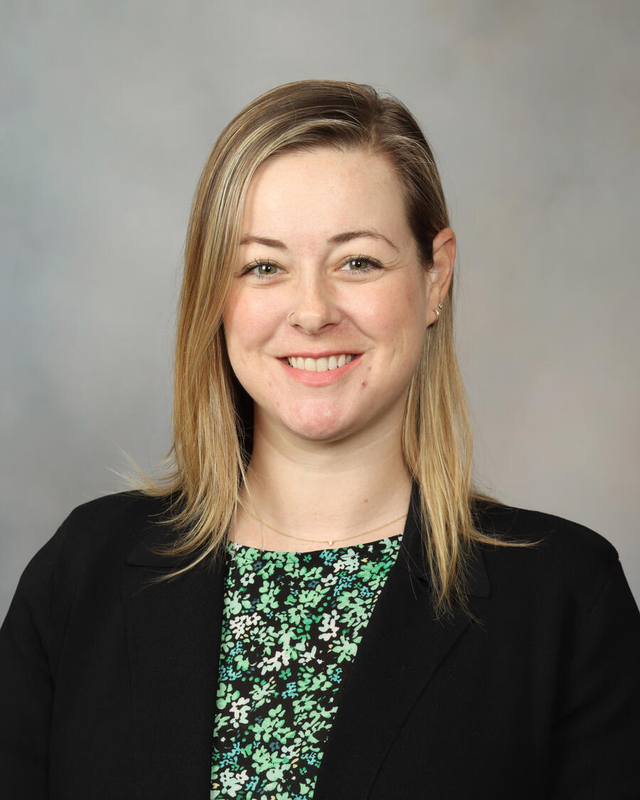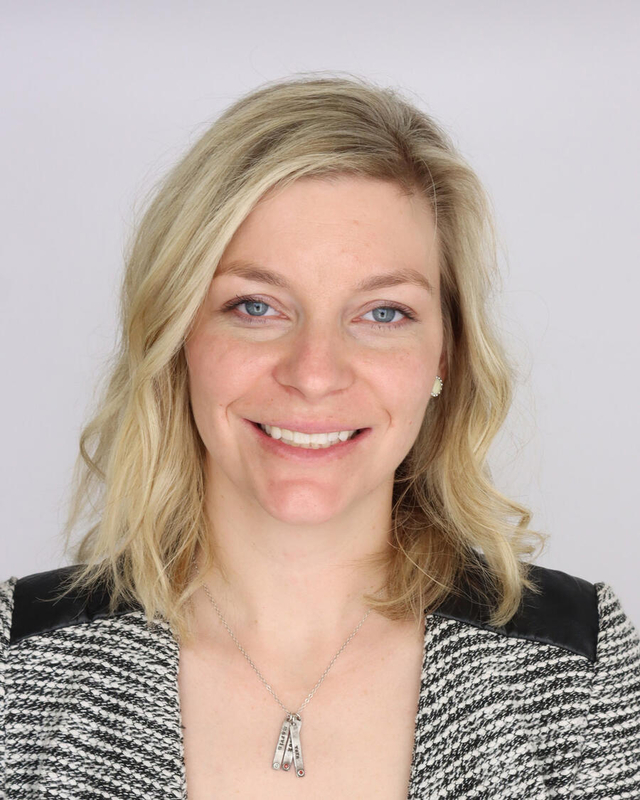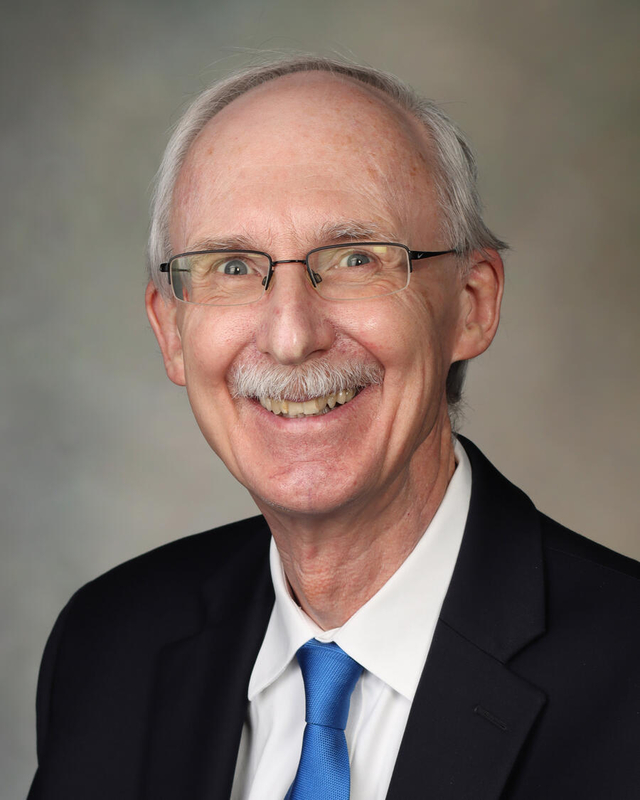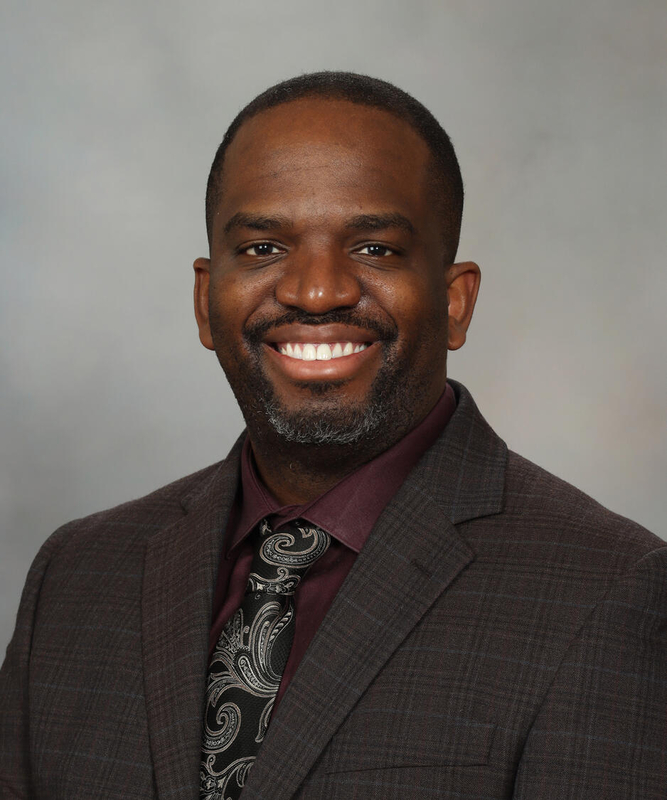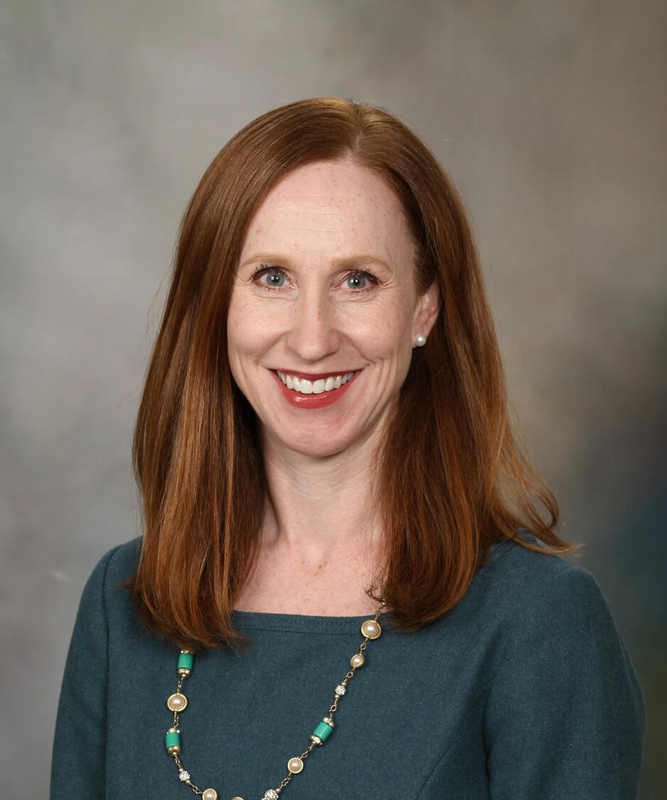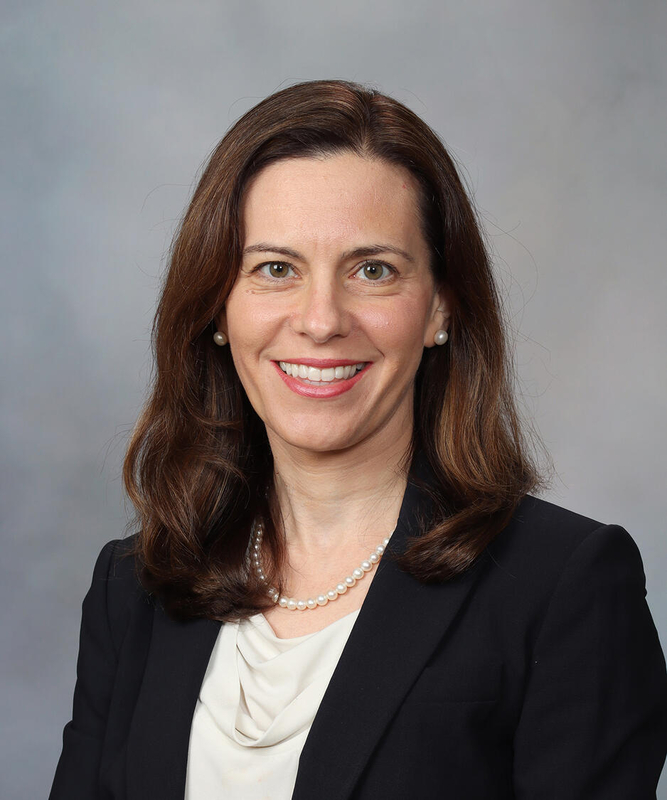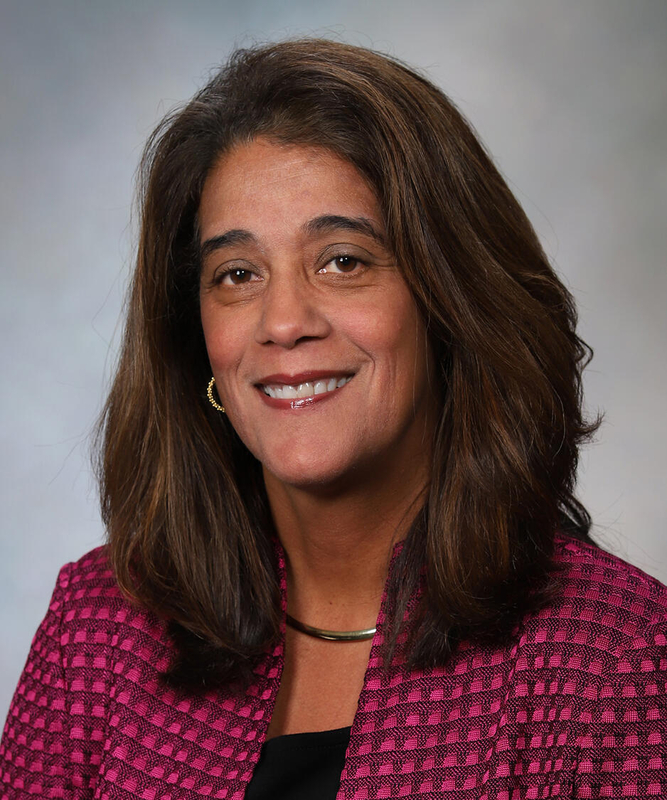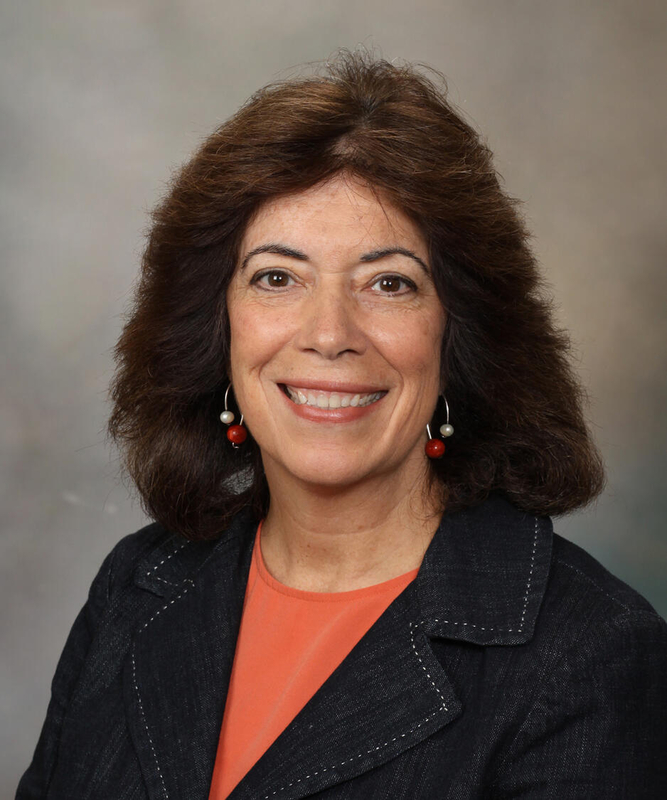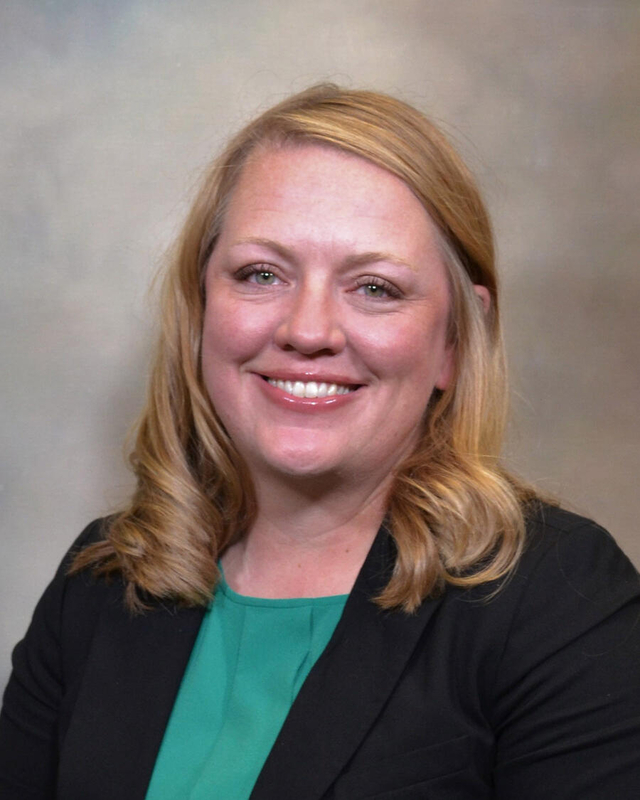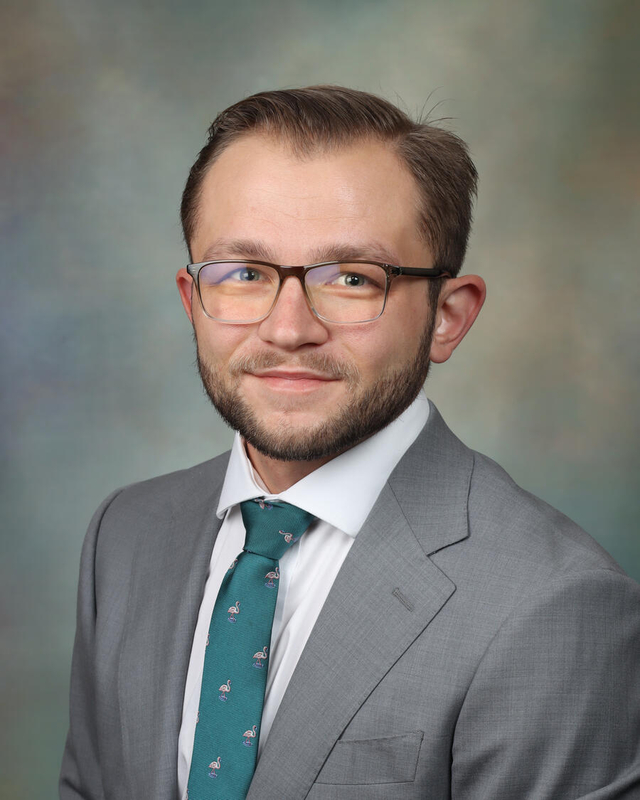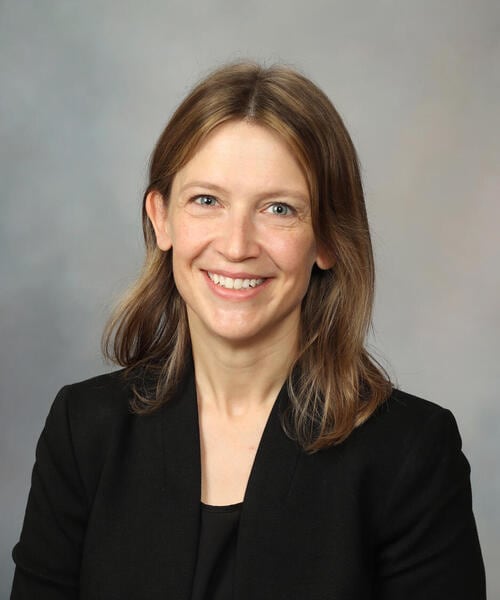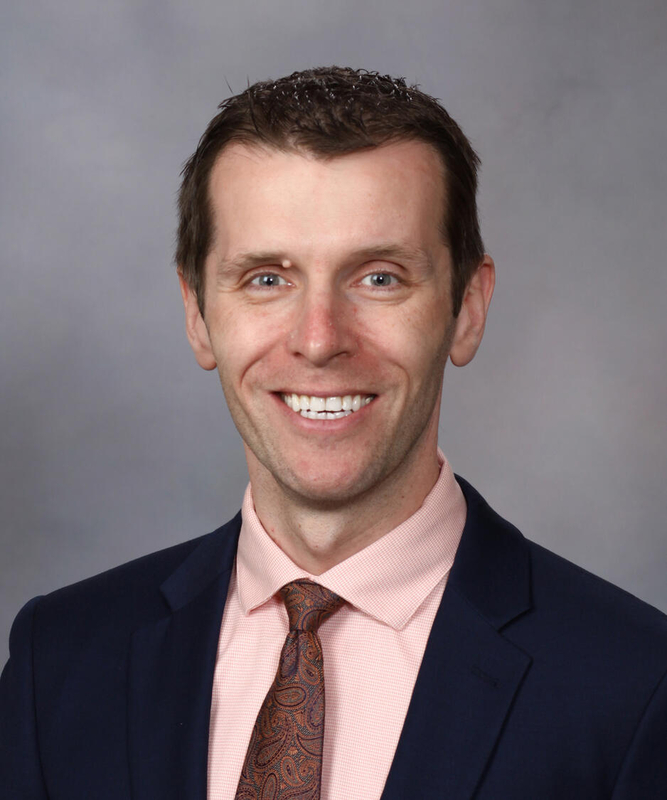|
Listen on your favorite podcast app below. |
Guest: Scott D. Eggers, M.D. | RE-RELEASE from Season 2: Mayo Clinic Talks "This Podcast Will Make Your Head Spin"December 31, 2024 Host: Darryl S. Chutka, M.D. (@ChutkaMD) Today, we're airing a popular episode from Season 2 of Mayo Clinic Talks! Happy Holidays! The complaint of dizziness is a common symptom our patients experience. It has a variety of causes; fortunately, most of them are benign. Despite the fact we frequently see patients with this medical concern, we still struggle evaluating them. Part of the difficulty is that dizziness means different things to different people and the cause of dizziness can be caused by disorders in one of several organ systems. To help us evaluate dizziness, Dr. Scott Eggers, a neurologist at the Mayo Clinic, reviews why dizziness is so difficult to evaluate and how we should evaluate a patient who complains of dizziness. We also explore the most common causes of dizziness including benign positional vertigo and vestibular neuritis. Finally, Dr. Eggers reviews symptoms that are suspicious for an ominous cause of dizziness. | |
Guest: Jana Al Hashash, M.D., M.S. | Crohn's DiseaseDecember 26, 2024 Host: Darryl S. Chutka, M.D. (@ChutkaMD)
| |
Guest: Aaron M. Potretzke, M.D. | RE-RELEASE from Season 2: Mayo Clinic Talks "Evaluating Hematuria"December 24, 2024 Host: Darryl S. Chutka, M.D. (@ChutkaMD) Today, we're airing a popular episode from Season 2 of Mayo Clinic Talks! Happy Holidays! Microscopic hematuria, and less commonly gross hematuria, are conditions commonly seen by the primary care provider. Malignancy is the most ominous cause of hematuria. Fortunately, other causes are much more likely. Since this is a relatively common health condition, when should we investigate hematuria and what should the evaluation consist of? How do we evaluate a patient’s risk for urinary tract malignancy? Dr. Aaron Potretzke, a urologist at Mayo Clinic, joins us to discuss these questions. | |
Guest: Terry D. Schneekloth, M.D. | Holiday Stress and Wellness Edition: Alcohol Use and the HolidaysDecember 19, 2024 Host: Darryl S. Chutka, M.D. [@chutkaMD] According to the National Institute on Alcohol Abuse and Alcoholism, there’s a significant increase in alcohol consumption during holidays. Christmas and New Years are times of celebration and alcohol use is often part of that celebration. Binge drinking is common, and this can result in impaired judgment, motor vehicle accidents, and risky behaviors. Who’s at greatest risk for alcohol-related behaviors? How can we as health care clinicians detect those at risk for a problem with alcohol during the holidays and what advice can we give our patients recovering from an alcohol addiction to get through the holidays and maintain their sobriety? The topic for this podcast is “Alcohol Use and the Holidays” and these are some of the questions I’ll be asking my guest, Terry Schneekloth, M.D., from the Department of Psychiatry and Psychology at the Mayo Clinic. | |
Guest: Mark A. Frye, M.D. | Holiday Stress and Wellness Edition: Holiday Stress and Mental HealthDecember 17, 2024 Host: Darryl S. Chutka, M.D. [@chutkaMD] For many, the holidays are a time for happiness and connecting with family and friends. It’s often a time of celebration. But for some, it can be a time of increased stress, anxiety and sadness. In some cases, our good health habits such as eating healthy, regular exercise and getting adequate sleep are replaced by overeating, consuming excess alcohol and taking on too many responsibilities. A recent study by the American Psychological Society found that 89% of those surveyed felt stressed during the holiday season. What are the most common reasons for this stress? Can we avoid it? If not, what are the best ways to manage it? I’ll be discussing these topics with my guest, Mark Frye, M.D., a psychiatrist from the Mayo Clinic. The topic for this podcast is “Holiday Stress and Mental Health”. | |
Guest: Amanda R. Bonikowske, Ph.D. | Holiday Stress and Wellness Edition: Exercise and the HolidaysDecember 12, 2024 Host: Darryl S. Chutka, M.D. [@chutkaMD] There are many benefits of exercise, from improving our mental health to reducing the risk of chronic disease. It can improve our sleep, increase our energy and can help establish relationships with others. It’s an activity that almost anyone can do, and it doesn’t have to cost a thing, other than an individual’s time. The holiday season will soon be upon us as well as its associated stress and in many cases, weight gain. Can exercise help with some of these problems associated with the holidays? How much exercise is optimal? What kind of exercise should we recommend for those who are unable to participate in vigorous exercise? Does it matter if we do one type of exercise or is a variety of exercise better? These are questions I’ll be asking my guest, Amanda Bonikowske, Ph.D., an exercise physiologist from the Department of Cardiovascular Diseases at the Mayo Clinic as we discuss “Exercise and the Holidays”. | |
Guests:
Megan R. Leloux, Pharm.D., R.Ph., BCPP | Holiday Stress and Wellness Edition: Pharmacologic Management of DepressionDecember 10, 2024 Host: Darryl S. Chutka, M.D. [@chutkaMD] Depression is very common both in the U.S. and worldwide. It’s estimated that major depression affects over 8% of American adults, representing over 20 million individuals. Fortunately, we now have a variety of pharmacologic options for the management of depression and they’re much safer than what we had available in the past. However, we now have so many choices, how do we know which medication is best for our patient? What’s the difference between an SSRI and an SNRI? Is there an anti-depressant that’s also effective in treating anxiety? Are some medications better for our elderly patients? I’ll be asking these questions and more to my guests, psychiatrist Bruce Sutor, M.D., and pharmacist Megan R. Leloux, Pharm.D., R.Ph., BCPP, from the Mayo Clinic as we discuss “Pharmacologic Management of Depression” as part of our “Holiday Stress and Wellness” podcast series. | |
| Holiday Stress and Wellness Edition: Seasonal DepressionDecember 5, 2024 Host: Darryl S. Chutka, M.D. [@chutkaMD] It’s relatively common for individuals to feel somewhat sad or have the “winter blues” when the days get shorter and then feel better when we get our daylight back in the spring. However, for some, mood changes can be more serious, and they may be experiencing seasonal affective disorder, a type of depression characterized by recurrent mood changes related to a change in the season. It’s estimated that up to 10 million Americans are affected by this disorder. What’s the natural history of seasonal affective disorder? Is it the same as depression which tends to occur around the holidays? Is seasonal affective disorder related to the time of year or the amount of sunlight and does it ever occur during the summer months? I’ll be asking these questions and more of my guest as we discuss “Seasonal Depression” as part of our “Holiday Stress and Wellness” podcast series. My guest for today’s podcast is psychologist Craig N. Sawchuk, Ph.D., L.P., from the Mayo Clinic. | |
Guest: Tara Schmidt, RDN, LD | Holiday Stress and Wellness Edition: How to Avoid Gaining Weight During the HolidaysDecember 3, 2024 Host: Darryl S. Chutka, M.D. [@chutkaMD] It’s not uncommon to gain a pound or two each year as we get older. For many, most of our annual weight gain occurs during the holidays. It’s a time of celebration and is filled with parties and events, often with high calorie foods and drinks. Holidays can also be stressful, and many find some relief of stress by eating. Weight gain during the holidays occurs so easily and quickly, yet losing this weight can be quite challenging and can take months. In fact, some studies have shown that weight put on during the holidays never comes off. How do we deal with the abundance of food we’re exposed to over the holidays? How should we approach holiday parties? How can we avoid contributing to the problem when we bring food to holiday events? With the holidays approaching, today’s podcast is directed at our own personal health in our “Holiday Stress and Wellness Series” as we discuss “How to Avoid Gaining Weight During the Holidays.” My guest for this podcast is registered dietician and nutritionist Tara Schmidt, RDN, LD, from the Mayo Clinic. Check out our guest’s podcast, “Mayo Clinic on Nutrition” Here https://mcpress.mayoclinic.org/podcasts/on-nutrition/ | |
Guest: Jon O. Ebbert, M.D. | Nicotine Dependence: Update on VapingNovember 26, 2024 Host: Darryl S. Chutka, M.D. [@chutkaMD] According to the CDC, in 2020 nearly 20% of high school students reported using a vaping product, and nearly a quarter of them indicated they used the product daily. It’s now known that vaping has potential health risks and is just as addictive as combustible tobacco products with some vaping cartridges having a higher concentration of nicotine than cigarettes. In this podcast, we’ll discuss nicotine dependence with an update on vaping. My guest is Jon O. Ebbert, M.D., an internist and nicotine dependence specialist at the Mayo Clinic. I’ll be asking Dr. Ebbert about the health risks of vaping, including second-hand exposure, the likelihood of “vapers” to switch to traditional tobacco products and whether vaping has any potential to help individuals discontinue use of tobacco products. | |
Guest: Aleksandra Kukla, M.D. | Inflammation and Cardiometabolic Disease: Chronic Kidney Disease as a Systemic Inflammatory SyndromeNovember 21, 2024 Host: Darryl S. Chutka, M.D. [@chutkaMD] In 2023, an estimated 14% of all adults in the U.S. or just over 35 million individuals had chronic kidney disease and it’s even more common in the elderly population affecting over 1/3 of those over the age of 65. It represents the 8th leading cause of death in the U.S. It’s now known that chronic kidney disease is associated with systemic inflammation, which is responsible for a variety of complications including atherosclerosis and subsequent cardiovascular disease. Does kidney disease result in inflammation or does inflammation produce renal dysfunction? Are there inflammatory markers we could measure to assess this inflammation? Can we do anything to reduce the inflammation and if so, does it improve patient outcome? These are just some of the questions I’ll be asking my guest, Aleksandra Kukla, M.D., from the Division of Nephrology at the Mayo Clinic as we discuss “Chronic Kidney Disease as a Systemic Inflammatory Syndrome”. These talks on Inflammation and Cardiometabolic Disease are sponsored by Novo Nordisk | |
| Inflammation and Cardiometabolic Disease Edition: Obesity - The Linking PathologyNovember 19, 2024 Host: Darryl S. Chutka, M.D. [@chutkaMD] It's common knowledge that those who are obese are at greater risk for developing metabolic syndrome, diabetes and cardiovascular disease. However, the reason for this association has not always been clear. It does appear that systemic inflammation plays a major role and obesity triggers this inflammation. But what specifically initiates the inflammation? How can we measure it? Most importantly, can we reduce or eliminate this inflammation and prevent the progression to these cardiometabolic states? My guest for this podcast is Maria L. Collazo-Clavell, M.D., from the Division of Endocrinology and Metabolism at the Mayo Clinic and we’ll discuss “Inflammation and Cardiometabolic Disease: Obesity- The Linking Pathology”. These talks on Inflammation and Cardiometabolic Disease are sponsored by Novo Nordisk | |
Guest: Alina M. Allen, M.D., M.S. | Inflammation and Cardiometabolic Disease Edition: Hepatic Inflammation and Metabolic Dysfunction-Associated Steatohepatitis (MASH)November 14, 2024 Host: Darryl S. Chutka, M.D. [@chutkaMD] Fat deposits in the liver are quite common and many individuals have no idea they have the condition. A minority of those individuals will develop an associated hepatic inflammation. It’s not entirely clear why some progress to this state, although there are some known risk factors. Steatohepatitis is a potentially serious health problem and can lead to end-stage liver disease. It’s also associated with cardiovascular disease and all of its complications. The topic for today’s podcast is Hepatic Inflammation and Metabolic Dysfunction-Associated Steatohepatitis. My guest is Alina M. Allen, M.D., M.S., from the Division of Gastroenterology and Hepatology at the Mayo Clinic. What are the risk factors for this health problem? Should we be screening patients for its presence and how should it be managed. These are just some of the topics we’ll discuss in this podcast. These talks on Inflammation and Cardiometabolic Disease are sponsored by Novo Nordisk | |
Guest: Regis I. Fernandes, M.D. | Inflammation and Cardiometabolic Disease Edition: hs-CRP and Cardiovascular DiseaseNovember 12, 2024 Host: Darryl S. Chutka, M.D. [@chutkaMD] Inflammation commonly occurs as a response to injury or infection but can lead to damage when it develops in healthy tissue. It’s now known that inflammation plays a key role in the development of cardiovascular disease. It produces damage to the endovascular arterial cells allowing plaque to form within the artery leading to stenosis, thereby reducing coronary blood flow. What initiates the inflammatory response as it develops in otherwise healthy arteries? How should we use the hs-CRP in measuring inflammation in cardiovascular disease? Does our management of cardiovascular disease result in a decrease in hs-CRP? These are some of the questions I’ll be asking my guest, Regis I. Fernandes, M.D., a preventive cardiologist from the Mayo Clinic as we discuss “hs-CRP and Cardiovascular Disease”. These talks on Inflammation and Cardiometabolic Disease are sponsored by Novo Nordisk | |
Guest: Vinaya Simha, M.B.B.S., M.D. | Inflammation and Cardiometabolic Disease Edition: Type 2 Diabetes as an Inflammatory DiseaseNovember 7, 2024 Host: Darryl S. Chutka, M.D. [@chutkaMD] Type 2 Diabetes is a commonly seen condition in a general medical practice. It’s estimated that over 38 million adults have the disease. When we think of diabetes, we think of a metabolic condition with patients who have hyperglycemia, often overweight, and occasionally have renal, eye and/or neurologic complications. But, do we ever think of diabetes as an inflammatory disease? How is inflammation associated with diabetes? What are the mediators of inflammation in diabetics and when we treat diabetes, are we reducing the associated inflammation in addition to lowering blood glucose? These are questions I’ll be asking our guest, Vinaya Simha, M.B.B.S., M.D., from the Division of Endocrinology and Metabolic Disease at the Mayo Clinic as we discuss “Type 2 Diabetes as an Inflammatory Disease”. These talks on Inflammation and Cardiometabolic Disease are sponsored by Novo Nordisk | |
Guest: Atul Jain, M.D., M.S. | Inflammation and Cardiometabolic Disease Edition: Interplay Between Cholesterol, Inflammation and ThrombosisNovember 5, 2024 Host: Darryl S. Chutka, M.D. [@chutkaMD] Cardiovascular disease is the leading cause of death for both men and women and it’s responsible for 1 in every 5 deaths. It’s estimated to cost over $250 billion a year, which includes the cost of medical services, medications and lost productivity. Patients with cardiovascular disease are commonly seen in a general medical practice and since it’s such a common health problem, we’re all pretty comfortable managing these patients. But do we know what’s happening pathologically? What’s the role of cholesterol and inflammation in cardiovascular disease? What causes the inflammation? How do we measure it and most importantly, can we do anything about it? I’ll be asking these questions of our guest, internist Atul Jain, M.D., M.S., from the Division of General Internal Medicine at the Mayo Clinic as we discuss the interplay between cholesterol, inflammation and thrombosis in cardiovascular disease. These talks on Inflammation and Cardiometabolic Disease are sponsored by Novo Nordisk | |
| Back to School Edition | Pediatric Mental Health DisordersOctober 31, 2024 Host: Darryl S. Chutka, M.D. [@chutkaMD] Unfortunately, mental health problems are common in our youth. A recent study by the CDC found that among adolescents aged 12 to 17, just under 21% had experienced a major depressive episode within the past year. Among high school students, more than 35% reported feeling sad or hopeless, with nearly 20% seriously contemplating suicide and mental health disorders are not limited to our teens. Over 17% of children aged 2 through 8 have had a diagnosis of a mental, behavioral or developmental disorder. Are mental health disorders in our youth increasing? How might depression present in a child or adolescent? How common is suicide in our youth and how often are suicide attempts successful? I’ll be asking these questions and more to my guest in today’s podcast on “Pediatric Mental Health Disorders” as part of our “Back to School” podcast series. My guest is child psychologist Joselyn R. Lebow, Ph.D., L.P., from the Mayo Clinic. | |
Guest: Erick D. Bothun, M.D. | Back to School Edition | Pediatric and Adolescent Ophthalmologic ConcernsOctober 29, 2024 Host: Darryl S. Chutka, M.D. [@chutkaMD] It’s estimated that more than 1 in 20 preschool-age children and 1 in 4 school-age children have a vision disorder. Since the eyes are the source of sensory input for much of the learning that takes place in our children, these statistics take on real importance. Vision problems in childhood can result in developmental delays and are often misdiagnosed as learning disabilities. As adults, we’re aware of changes and problems with our vision. Children who have never known clear vision may not realize their vision is impaired. What are the most common eye disorders in children? How many of our pre-school children are receiving vision screening? What are common signs a child may have a vision impairment? These are just some of the questions I’ll asking my guest, Erick D. Bothun, M.D., from the Department of Ophthalmology at the Mayo Clinic. As part of our “Back to School” Series, we’ll be discussing “Pediatric and Adolescent Ophthalmologic Concerns”. | |
Guest: Julie M. Baughn, M.D. | Back to School Edition | Pediatric and Adolescent Sleep MedicineOctober 24, 2024 Host: Darryl S. Chutka, M.D. [@chutkaMD]
Sleep is very important for a child’s physical and mental health and plays a vital role in the development of cognitive and motor skills. The American Academy of Pediatrics estimates that up to 50% of children and 40% of adolescents have problems with their sleep, which may manifest as issues in school, mood disorders as well as relationship problems with others. What kind of sleep problems do children and adolescents commonly experience? When should we suspect impaired sleep is causing problems and do children and adolescents have some of the same sleep disorders as adults? I’ll be asking these questions and more as we explore “Pediatric and Adolescent Sleep Medicine” as part of our “Back to School” series of podcasts. My guest is Julie M. Baughn, M.D., a pulmonologist and sleep specialist at the Mayo Clinic. | |
Guests:
| Diverticular DiseaseOctober 22, 2024 Host: Darryl S. Chutka, M.D. [@chutkaMD] Diverticulosis is quite common. Its prevalence varies with age from fewer than 20% at age 40 to 60% by age 60. It's far more common in the left colon and tends to be progressive with both the number and size of the diverticula, both increasing with age. There are potential complications of diverticulosis, with diverticulitis being most common. This also tends to increase in prevalence with age and appears to be increasing with time. Can diverticulitis be prevented? What’s the best way to manage a patient with acute diverticulitis and when is surgery indicated? I’ll be asking these questions and more to my guests, Sahil Khanna, M.B.B.S., M.S., from the Division of Gastroenterology and Hepatology and Sherief Shawki, M.B., B.Ch., M.D., from the Division of Colorectal Surgery at the Mayo Clinic. | |
Guest: David B. Soma, M.D. | Back to School Edition | Pediatric and Adolescent Sports InjuriesOctober 17, 2024 Host: Darryl S. Chutka, M.D. [@chutkaMD] Participation in sports in children and adolescents is extremely common and its popularity is increasing. Although sports play an important role in promoting health and developing interpersonal relationships, its estimated that injuries related to playing sports is quite common, especially musculoskeletal injuries. The literature describes prevalence rates ranging from 34 to 65%. This leads to lost school days and significant health care costs. Which sports carry the greatest risk of injury? Are there any differences in injuries in girls vs. boys? Can sports injuries be prevented and are the benefits of participation in sports worth the risk of serious injury? We’ll discuss these issues and more as part of our “Back to School” podcast series. The topic for this podcast is “Pediatric and Adolescent Sports Injuries” and my guest is David B. Soma, M.D., from the Department of Pediatric and Adolescent Medicine at the Mayo Clinic. | |
Guests:
Semirra L. Bayan, M.D.
Katie M. Van Abel, M.D. | RISE for Equity Podcast | Advancing Diversity in the Physician WorkforceOctober 15, 2024 Host: Nicole Nfonoyim-Hara On this episode of the RISE for Equity podcast, host Nicole Nfonoyim-Hara is joined by Semirra L. Bayan, M.D., and Katie M. Van Abel, M.D., to discuss diversifying the physician workforce. Dr. Van Abel and Dr. Bayan share about the important role of pathway programs to lift up marginalized and underserved communities, and innovative strategies for cultivating diversity, equity, and inclusion in medical training and careers. Learn more at https://mcpress.mayoclinic.org/rise-for-equity/ “Equity is about pulling up more chairs at a table. There's just more chairs at the table. We're not taking chairs away from other people. And the importance of lifting everybody up and creating community truly makes all of us better people.” – Dr. Bayan “One thought has been really important for me throughout this process, and that is to remain curious; to not just assume you know everything about a problem, to learn as we go, and to allow the people that we're working with to teach us so that we can do better for the next group of students or individuals.” -Dr. Van Abel | |
Guest: Angela C. Mattke, M.D. | Back to School Edition | Pediatric and Adolescent Diet & NutritionOctober 10, 2024 Host: Darryl S. Chutka, M.D. [@chutkaMD] Providing good nutrition and developing healthy eating habits is extremely important for our children. It sets a pattern and can impact their health throughout their adult life. However, this goal has many challenges. Parents must battle effective media marketing for unhealthy foods, deal with ever available and convenient fast-food options and struggle with time constraints in their busy families. How healthy are the diets of our children? How can parents manage their own busy schedules and still prepare healthy meals and what’s our role as health care clinicians in promoting healthy nutrition in our children. This podcast in our “Back to School” series will focus on these questions as we discuss “Pediatric and Adolescent Diet and Nutrition”. My guest is Angela C. Mattke, M.D., a pediatrician from the Division of Community Pediatrics and Adolescent Medicine at the Mayo Clinic. | |
Guest: Robert M. Jacobson, M.D. | Back to School Edition | Immunization UpdateOctober 8, 2024 Host: Darryl S. Chutka, M.D. [@chutkaMD] Pencils, books and lots of dreams is what many children will experience as they head back to school. It’s a time filled with a variety of emotions: excitement and anticipation over what the next 9 months will bring. For some, it’s a time of sadness as summer comes to an end. It’s also a time to review and update immunizations. What’s recommended for school and what’s required? What are the common reasons parents refuse immunizations for their children and how do we address the many myths people have about immunizations? I’ll be getting the answers to these questions in today’s podcast from our guest, Bob M. Jacobson, M.D., from the Division of Community Pediatrics and Adolescents at Mayo Clinic. | |
| Conversations in OB/GYN: Infectious Diseases in Pregnancy: Part TwoOctober 3, 2024 Hosts: Chatura Alur, M.D., M.P.H. | Meghan G. Theofiles, M.D. Welcome to our OB/GYN mini-series! “Help me OB/GYN! You’re my only hope”. Today, we are going to be discussing inpatient management of infections in pregnant patients. Specifically, infections that might show up on a general medicine service or in the emergency department. To help us understand how to better assess and manage these patients, we are joined by Regan N. Theiler, M.D., Ph.D., obstetrical hospitalist and immediate past-chair of the Division of Obstetrics and Gynecology at Mayo Clinic in Rochester. | |
Guest: Richa Sood, M.D., M.S. | Lifting the Veil on Female Sexual DysfunctionOctober 1, 2024 Host: Darryl S. Chutka, M.D. [@chutkaMD] Concerns and problems related to sexual health in women are common and can be very distressing. They can occur at any stage of life and can lead to issues with self-image and potential problems in establishing and maintaining relationships with a partner. To complicate things, this problem is often not mentioned by the patient when they are seen by their health care provider. The issues are often complex and can involve physiology, emotions, lifestyle as well as several other factors. In this podcast, we’ll discuss female sexual concerns and dysfunction. What are common sexual problems patients experience? How do we evaluate the patient’s concerns? How are the problems managed and most importantly, how do we encourage our patients to let us know when they are having problems related to their sexual health. My guest is Richa Sood, M.D., M.S., an internist and specialist in women’s health at the Mayo Clinic. | |
| Conversations in OB/GYN Edition | Infectious Diseases in Pregnancy: Part OneSeptember 26, 2024 Hosts: Chatura Alur, M.D., M.P.H. | Meghan G. Theofiles, M.D. Welcome to our OB/GYN mini-series! “Help me OB/GYN! You’re my only hope”. Today, we’ll be discussing common infections during pregnancy. We are joined by Regan N. Theiler, M.D., Ph.D., obstetrical hospitalist and immediate past-chair of the Division of Obstetrics and Gynecology at Mayo Clinic in Rochester. Not only does she serve on the National Clinical Committee for the American College of Obstetrics and Gynecology, but she has also earned a Ph.D. in microbiology and immunology. | |
Guest: Candace F. Granberg, M.D. | Testicular Tissue CryopreservationSeptember 24, 2024 Host: Darryl S. Chutka, M.D. [@chutkaMD] Developments in cancer treatment have resulted in significant improvements in the survival of malignancy in young children. Unfortunately, these treatments often result in infertility. If these children are pre-pubertal, preservation of mature sperm is not possible. But there is now a procedure which may result in the preservation of fertility by removing testicular tissue, subjecting it to cryopreservation to preserve stem cells capable of producing viable sperm in the future. This procedure is known as testicular tissue cryopreservation and I’ll be discussing it with our guest, Candace F. Granberg, M.D., a urologist at the Mayo Clinic. | |
Guest: Jenna N. Wygant, APRN, C.N.P., D.N.P. | Conversations in OB/GYN Edition | Unexpected PregnancySeptember 19, 2024 Hosts: Chatura Alur, M.D., M.P.H. | Meghan G. Theofiles, M.D. Welcome to our OB/GYN mini-series! “Help me OB/GYN! You’re my only hope”. Sometimes we encounter unexpected pregnancies as healthcare professionals and clinicians. To help us “skill-up” for those conversations, we have Jenna N. Wygant, APRN, C.N.P., D.N.P. She is an advanced practitioner and assistant professor of Obstetrics and Gynecology at Mayo Clinic in Rochester. | |
Guest: Subashnie Devkaran, Ph.D. | RISE for Equity Podcast | Quality and Value to Promote Health EquitySeptember 17, 2024 Host: Nicole Nfonoyim-Hara On this episode of the RISE for Equity Podcast, Subashnie Devkaran, Ph.D., joins host Nicole Nfonoyim-Hara to discuss the importance of the value of care, and how Mayo Clinic champions equity through quality care. Learn more at | |
Guest: Margaret E. Long, M.D. | Conversations in OB/GYN Edition | HyperemesisSeptember 12, 2024 Hosts: Chatura Alur, M.D., M.P.H. | Meghan G. Theofiles, M.D. Welcome to our OB/GYN mini-series! “Help me OB/GYN! You’re my only hope”. Today, we’re going to be talking about nausea and vomiting in pregnancy. We definitely see this in the healthcare setting, outside of the specialty office; and sometimes I wonder, do I know the latest and greatest information about this and how do we best manage these patients. To help us with this, we have Margaret E. Long, M.D. She’s an obstetrician and gynecologist researcher and award-winning educator and one of our faculty members here at the Mayo Clinic. | |
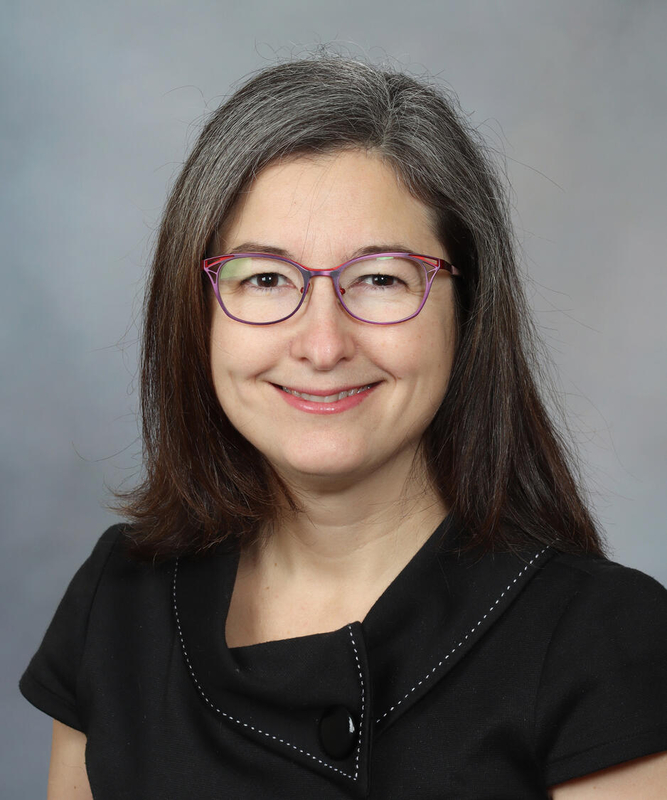 Guest: Ana I. Casanegra, M.D., M.S. | Venous Thrombosis (DVT)September 10, 2024 Host: Darryl S. Chutka, M.D. [@chutkaMD] Venous thrombosis is an under diagnosed and potentially serious health condition, yet in many cases its preventable and certainly treatable when found. Its most serious potential complication is embolization, most commonly to the lung. As a medical condition, venous thrombosis has been known for many years. In fact, the triad of contributing factors to venous thrombosis including venous stasis, vascular injury and hypercoagulability were discovered in the mid-1800’s. Despite the long duration we’ve been diagnosing and treating the health problem, there’s still much we need to learn about it. The topic for today’s podcast is venous thrombosis and we’ll discuss its risk factors, how to diagnose a DVT and the best management recommendations. My guest will be Ana I. Casanegra, M.D., M.S., a vascular medicine specialist at the Mayo Clinic. | |
Guest: Julie A. Lamppa, APRN, CNM | Conversations in OB/GYN Edition | Loss ManagementSeptember 5, 2024 Hosts: Chatura Alur, M.D., M.P.H. | Meghan G. Theofiles, M.D. Welcome to our OB/GYN mini-series! “Help me OB/GYN! You’re my only hope”. Today, we’re back with Julie A. Lamppa, APRN, CNM, director of our midwifery services at Mayo Clinic Rochester and director of the Early Pregnancy Care Clinic at Mayo Clinic in Rochester. For this episode, we will be continuing our conversation about first trimester bleeding but going more towards how it relates to pregnancy loss. | |
Guest: Julie A. Lamppa, APRN, CNM | Conversations in OB/GYN Edition | First Trimester BleedingSeptember 3, 2024 Hosts: Chatura Alur, M.D., M.P.H. | Meghan G. Theofiles, M.D. Welcome to our OB/GYN mini-series! “Help me OB/GYN! You’re my only hope”. This podcast edition is specifically designed for the non-OB/GYN frontline provider. Today, we’re going to be addressing first trimester bleeding and we are joined by our content expert, Julie A. Lamppa, APRN, CNM. She is the director of our midwifery services at Mayo Clinic Rochester and the director of the Early Pregnancy Care Clinic at Mayo Clinic in Rochester. | |
| Working Effectively with Patients with Obsessive Compulsive Disorder (OCD)August 27, 2024 Host: Darryl S. Chutka, M.D. [@chutkaMD] It’s estimated that 1 in 40 adults have obsessive compulsive disorder. Obsessions are repetitive, unwanted thoughts that are very difficult to control. They commonly cause distress and anxiety and are often focused on a specific theme such as germs and contamination. Compulsions are repetitive behaviors or thoughts that help make the obsessive thoughts go away. They can be very time consuming and prevent the individual from participating in activities the person values. Treatment is available for patients with OCD, and most can be helped. We’ll discuss OCD with our guest, Craig N. Sawchuk, Ph.D., L.P., a psychologist at the Mayo Clinic and find out how patients with OCD present, common obsessions they experience and how OCD can be managed. | |
Guest: Isa J. Houwink, M.D., Ph.D. | Genes and Your Health Edition | GeneRx: Revolutionizing Primary Care with PharmacogenomicsAugust 22, 2024 Host: Denise M. Dupras, M.D., Ph.D. Pharmacogenomics (PGx) is transforming everyday primary care practice. By using patients’ genetic profiles, providers are guiding more precise, personalized treatments. In this episode of Genes & Your Health podcast, primary care physicians Dr. Denise Dupra and Dr. Isa J. Houwink discuss their practical applications and integration of PGx. The tips, tools and case studies shared, including how to optimize medication outcomes, reduce adverse drug reactions and deliver better patient care, is beneficial for all primary care providers. | |
| RISE for EQUITY Podcast | Women in MedicineAugust 20, 2024 HOST: Nicole Nfonoyim-Hara On this episode of the RISE for Equity podcast, host Nicole Nfonoyim-Hara is joined by Dr. Aminah Jatoi and Dr. Yemi Sokumbi to discuss women in medicine. Drs. Jatoi and Sokumbi share their personal stories of deciding to practice medicine, explore the current field of medicine as women physicians, and offer insight into the growth of women in the medical workforce and leadership in the future. Learn more at https://mcpress.mayoclinic.org/rise-for-equity/ | |
Guest: Margot A. Cousin, Ph.D. | Genes and Your Health Edition | Antisense Oligonucleotide (ASO) Therapeutics for Rare Genetic DiseaseAugust 15, 2024 Host: Denise M. Dupras, M.D., Ph.D. This episode of Genes & Your Health provides a comprehensive look at how ASO (Antisense Oligonucleotide) therapy is paving the way for personalized medicine and offering new hope for patients with previously untreatable conditions. Margot A. Cousin, Ph.D., an Assistant Professor of Medical Genetics in the Department of Molecular Medicine and Director of the N-or-1 Therapeutics Program in the Center for Individualized Medicine, walks us through an overview of what antisense oligonucleotides are and how they work. We then discuss clinical applications, success stories, and potential new applications to transform treatment approaches. | |
Guest: Mark A. Frye, M.D. | Weight Changes Associated with AntidepressantsAugust 13, 2024 Host: Darryl S. Chutka, M.D. [@chutkaMD] We have a variety of antidepressant medications available to us including SSRI’s, SNRI’s and others, and for the most part they’re very well tolerated by our patients. They are much better tolerated compared to some of our older options such as the tricyclic antidepressants and MAO inhibitors. These older products often produced cardiovascular and anticholinergic adverse effects, not commonly seen with our newer medications. However, our newer antidepressants do have a relatively common adverse effect. They tend to produce weight changes, usually a weight increase. Which antidepressants tend to produce the most weight gain? How much weight does the typical patient gain from these medications? Is the weight gained typically maintained or lost when the medication is stopped? In this podcast, I’ll be discussing these questions and more with Mark A. Frye, M.D., a psychiatrist at the Mayo Clinic. | |
Guest: Marina Walther-Antonio, Ph.D. | Genes & Your Health Edition | Microbiome and Ovarian CancerAugust 8, 2024 Host: Denise M. Dupras, M.D., Ph.D. Can microbe populations affect women’s health in areas like ovarian cancer or predicting pre-term delivery? Tune into this episode of Genes & Your Health with Marina Walther-Antonio, Ph.D., a microbiome researcher within Mayo Clinic's Center for Individualized Medicine, to learn what recent research studies suggest about the interaction of the microbiome, the environment, and the genome. | |
Guest: Kristina M. Thurber, Pharm D., R.PH. | Obesity Pharmacotherapy ManagementAugust 6, 2024 Host: Darryl S. Chutka, M.D. [@chutkaMD] Obesity in the U.S. is reaching epidemic proportions. Managing our overweight patients has been challenging, with few being able to adopt and adhere to a healthy diet and exercise program. There is a class of medications that improves blood glucose in type 2 diabetics and in most cases also results in significant weight loss. These medications are known as glucagon-like peptide 1 or GLP-1 agonists. A substantial number of patients are taking these medications, some for management of diabetes but for many others, the weight loss they produce. How do these medications work to produce weight loss? How much weight loss can patients expect? How much do they cost and most importantly, are these medications the solution to obesity as a health problem? In this podcast, I’ll be discussing these questions with my guest, Kristina M. Thurber, Pharm D., R.P.H., a pharmacist at the Mayo Clinic as we review “Obesity Pharmacotherapy Management”. | |
Guest: Jessica Kelly, JD | Genes and Your Health Edition | Legal Aspects of Genetic TestingAugust 1, 2024 Host: Denise M. Dupras, M.D., Ph.D. Join our expert hosts as they delve into the intersection of genetic science and the legal landscape in this episode of Genes & Your Health. Jessica Kelly, J.D., and Denise M. Dupras, M.D., Ph.D., discuss the latest advancements in genetic research, personalized medicine, and how these innovations are shaping the future of healthcare. They also explore the legal implications, from privacy concerns and ethical considerations to the policies governing genetic data usage and patient rights. Whether you're a healthcare professional, a legal expert, or simply curious about the future of genetics, this episode offers valuable insights and thought-provoking discussions. Tune in to stay informed about the cutting-edge developments at the nexus of genetics and the law. | |
Guests:
| SarcomasJuly 30, 2024 Host: Darryl S. Chutka, M.D., [@chutkaMD] When you think of malignancies, sarcomas don’t usually come to mind. They are very uncommon and can occur in numerous locations. In addition, they can be very difficult to diagnose as the symptoms they produce are often very subtle. Approximately 15,000 cases of sarcoma are diagnosed each year in the U.S. and because July is Sarcoma Awareness Month, we’re going to do our part to raise awareness of sarcomas. My guests for this podcast include Steven I. Robinson, M.B.B.S. and Brittany L. Siontis, M.D., both from the Department of Oncology at the Mayo Clinic. | |
| Genes and Your Health Edition | AI in Cardiology and Primary CareJuly 25, 2024 Host: Denise M. Dupras, M.D., Ph.D. Rapid advances in artificial intelligence, or AI, are changing everyday medical practice. In this episode of Genes & Your Health, explore the transformative role of AI in cardiology and primary care practices. Don’t miss this fascinating episode of Genes & Your Health with Peter A. Noseworthy, M.D., M.B.A., Professor of Medicine and Chair of the Division of Heart Rhythm Services at the Mayo Clinic. We’ll discuss the power of AI in early detection of heart disease, streamlined workflows for better patient outcomes, and ethical considerations of using AI in healthcare. | |
Guest: Emma F. Johnson, M.D. | From Head to Toe: How to Perform a Skin ExamJuly 23, 2024 Host: Darryl S. Chutka, M.D., [@chutkaMD] For both men and women, skin cancer is the most common malignancy and unlike colon, breast and lung cancer, skin cancers should be visible as they exist on the exterior of our bodies. Primary care providers need to be proficient in examining the skin of our patients and recognizing suspicious skin lesions. It’s just not possible to send all patients to a dermatologist for a skin exam. In this podcast, we’ll explore what questions we should ask our patients before we perform an exam of their skin, how we fit a skin exam into our busy schedules, and when a photograph of a skin lesion might be of benefit. Our guest for this podcast is Emma F. Johnson, M.D., a dermatologist from the Mayo Clinic. | |
Guest: Aaron S. Mansfield, M.D. | Genes and your Health Edition | Answers from the Lab: Cell Free DNA and Testing for CancerJuly 18, 2024 Host: Denise M. Dupras, M.D., Ph.D. Can a simple blood draw diagnose cancer? Join this episode of Genes & Your Health with Aaron Mansfield, M.D., a Mayo Clinic medical oncologist whose focus is on thoracic malignancies and early therapeutics, as we discuss the science behind non-invasive cancer screening, how cell-free DNA tests can help diagnose some cancers earlier than ever before, what limitations exist, and what promise the future holds. | |
GUEST: Amy Hara, M.D. | RISE for EQUITY Podcast | Leadership in Healthcare: An Asian American PerspectiveJuly 16, 2024 HOST: Nicole Nfonoyim-Hara On this episode of the RISE for Equity podcast, Dr. Amy Hara joins host Nicole Nfonoyim-Hara for an insightful discussion on the topic of leadership in healthcare. Dr. Hara, a member of the Mayo Clinic Board of Governors and Mayo Clinic Arizona’s Executive Operations team, shares her experiences and perspectives on what it means to be an effective leader in the ever-evolving healthcare industry. Learn more at https://mcpress.mayoclinic.org/rise-for-equity/ "For my leadership, I really encourage folks to bring themselves. Because you think differently or because you do this differently, you would be a great leader. I try to encourage people that's a strength in not trying to mold yourself into something else." -Amy Hara, M.D. | |
Guest: Jason D. Greenwood, M.D., M.S. | Artificial Intelligence (AI) in Medicine: Part 2July 11, 2024 Host: Darryl S. Chutka, M.D. [@chutkaMD] Artificial intelligence is currently one of the most commonly discussed topics, but how does it relate to the practice of medicine? According to a recent publication in the Journal of the American Board of Family Medicine, “AI has the potential to fundamentally change the way society thinks about medicine, the way medicine is practiced, and the way medicine is taught.” That’s a pretty all-encompassing statement regarding the effect AI will have on what we do. Is AI beneficial to us as clinicians? Are there challenges associated with it? What are its shortcomings? In this podcast, I’ll be asking my guest, Jason D. Greenwood, M.D., M.S., a family physician at the Mayo Clinic these questions and as we discuss Artificial Intelligence in Medicine in this two-part release on July 9 and July 11! | |
Guest: Jason D. Greenwood, M.D., M.S. | Artificial Intelligence (AI) in Medicine: Part 1July 9, 2024 Host: Darryl S. Chutka, M.D. [@chutkaMD] Artificial intelligence is currently one of the most commonly discussed topics, but how does it relate to the practice of medicine? According to a recent publication in the Journal of the American Board of Family Medicine, “AI has the potential to fundamentally change the way society thinks about medicine, the way medicine is practiced, and the way medicine is taught.” That’s a pretty all-encompassing statement regarding the effect AI will have on what we do. Is AI beneficial to us as clinicians? Are there challenges associated with it? What are its shortcomings? In this podcast, I’ll be asking my guest, Jason D. Greenwood, M.D., M.S., a family physician at the Mayo Clinic these questions and as we discuss Artificial Intelligence in Medicine in this two-part release on July 9 and July 11 this week! | |
Guest: Newton B. Neidert, M.D. | Management of Varicose VeinsJuly 2, 2024 Host: Darryl S. Chutka, M.D. [@chutkaMD] Varicose veins are quite common and for most, they’re a minor nuisance. However, for some individuals, they have the potential to be much more than a cosmetic health problem. They can lead to a variety of symptoms including skin discoloration, discomfort, extremity swelling and occasionally skin ulceration. Fortunately, there have been numerous advances in the management of varicose veins and in this podcast, I’ll discuss these advances with interventional radiologist, Newton B. Neidert, M.D., from the Mayo Clinic. We’ll discuss who’s at risk for varicose veins, typical symptoms patients experience and the conservative as well as more invasive treatment options. | |
Guest: Natalie C. Erbs, M.D. | Healthcare of the Transgender PatientJune 25, 2024 Host: Darryl S. Chutka, M.D. [@chutkaMD] There is abundant research that indicates there are healthcare inequities experienced by transgender individuals. Transgender patients have the same basic health care needs as any patient. However, in addition, they might also have gender-related healthcare needs and concerns. It’s important for us to meet these healthcare needs, and this requires some special knowledge. The special needs of the transgender patient may be related to gender-affirming hormonal therapy or surgery, or it may relate to gender-specific preventive healthcare. This podcast will explore transgender health care. We’ll discuss the difficulties experienced by transgender patients, the specific healthcare needs they have and how we can become more educated in providing healthcare to transgender patients. My guest is Natalie C. Erbs, M.D., from the Department of Family Medicine at the Mayo Clinic. | |
GUESTS:
| RISE FOR EQUITY Podcast | Pain Points: Strategies to Address Bias in Pain ManagementTuesday, June 18, 2024 HOST: Nicole Nfonoyim-Hara “On a scale of 1 to 10, what's your pain?” If you’ve just broken a bone or are seeking treatment for endomitosis, it’s likely the first question you’ll be asked. But what if your pain is dismissed or minimized due to your age, race, or gender? In this episode of the RISE for Equity podcast, host Nicole Nfonoyim-Hara unpacks the latest evidence around bias in pain management—and effective strategies for a holistic approach to care—with Mayo Clinic physicians Catherine Njathi-Ori and Natalie Strand. Catherine W. Njathi-Ori, M.D., is an anesthesiologist specializing in acute pain management based in Rochester, Minnesota. Natalie H. Strand, M.D., is an Associate Professor in the Department of Anesthesiology, Division of Pain Medicine. She serves as the Director of Pain Research and the Director of Neuromodulation for Mayo Clinic Arizona. Learn more at https://mcpress.mayoclinic.org/rise-for-equity/ “We need to be humble as providers, because there definitely will be cultural influences on how patients are going to respond to how they're feeling…. While we have the visual and the numeric skills, we have to acknowledge that pain is more complex.” — Catherine Njathi-Ori, M.D. “People I think are well-meaning in medicine for the most part. I really believe that. But just because you're well-meaning doesn't mean you're not biased. People often can't see their own blind spots. When you don't have diversity in your division or department, or you don't have diversity on your admissions committees, or you don't have diversity in your surgical teams and anesthesia teams, how is anybody supposed to see their own blind spots?” —Nathalie H. Strand, M.D. | |
Guest: Amanda K. Lorenz, M.D. | Handle with Care to Giving Bad NewsTuesday, June 11, 2024 Host: Darryl S. Chutka, M.D. [@chutkaMD] Giving our patients bad or unexpected news is one of the most difficult, but also one of the most important responsibilities we have as health care clinicians. This is when our patients need us the most and we need to do this with compassion and empathy. This is best done face to face and ideally once we have established a good relationship with our patient. Unfortunately, this isn’t always possible. A clinician in the emergency department telling a patient they’ve suffered an MI or a radiologist explaining a worrisome finding on mammogram may have just recently met the patient. What’s the best way to give our patients bad news? Can we become better at this? What can we expect from our patients after they hear the news? And how much information should we share with them? These are all topics we’ll discuss with our guest, Amanda K. Lorenz, M.D., a palliative medicine physician. Our topic for this podcast is “Giving Bad News”. | |
Guest: Ali J. Ainsworth, M.D. | InfertilityTuesday, June 4, 2024 Host: Darryl S. Chutka, M.D. [@chutkaMD] A successful pregnancy is a complicated process. It involves a combination of precise timing as well as anatomic and physiologic conditions which need to be intact and functioning normally. When pregnancy is unable to be achieved, it can be due to a problem in the female, the male, or both. It’s relatively common and can result in significant frustration. Psychological problems also commonly result. The topic for today’s podcast is infertility; it’s causes, evaluation and management. My guest is Ali J. Ainsworth, M.D., a specialist in reproductive endocrinology and infertility from the Department of Obstetrics and Gynecology at the Mayo Clinic. | |
Guest: Robert M. Jacobson, M.D. | Update in Immunizations 2024Tuesday, May 28, 2024 Host: Darryl S. Chutka, M.D. [@chutkaMD] Immunizations are one of the greatest success stories in modern medicine and it’s estimated that they’ve saved more lives and prevented more disabilities than any other medical intervention. They’re probably responsible, more than any other medical advance in contributing to our increased longevity as a population. They’re also extremely cost-effective and their benefits far outweigh the very small risks they carry. This podcast will review new information regarding immunizations and how we as clinicians can increase our patients’ immunization rates. Our guest is Robert M. Jacobson, M.D., a pediatrician, and expert in immunizations from the Department of Pediatrics at the Mayo Clinic. | |
Guests:
John Halamka, M.D., M.S.
Sonya Makhni, M.D., M.S., M.B.A. | RISE FOR EQUITY Podcast | Demystifying Equity: Navigating the Intersection of AI and HealthcareTuesday, May 21, 2024 Host: Nicole Nfonoyim-Hara On this episode of the RISE for Equity podcast, Dr. John Halamka and Dr. Sonya Makhni join host Nicole Nfonoyim-Hara to explore the multifaceted realm of Equity in Artificial Intelligence (AI). Delving into AI's applications in healthcare and various industries, this episode sheds light on its potential to transform patient care experiences. Listeners gain a deeper understanding of how AI is reshaping healthcare and are equipped with insights to recognize its presence and benefits within the healthcare landscape. This episode also serves as a beacon illuminating the transformative potential of artificial intelligence in improving patient care experiences. John D. Halamka, M.D., M.S., is a dedicated leader in advancing technology and policy for information exchange among healthcare stakeholders. Currently serving as President of the Mayo Clinic Platform, Dr. Halamka collaborates on research addressing algorithmic bias. With a rich background in education, including 25 years as a professor at Harvard Medical School, he is committed to nurturing the next generation of healthcare technology professionals. Sonya Makhni, M.D., M.S., M.B.A., serves as the Medical Director of Mayo Clinic Platform. Her focus spans data systems transformation, ML operations, AI bias mitigation in healthcare, health equity, innovation, change management, and novel care delivery models. Additionally, she is a Senior Associate Consultant in Hospital Internal Medicine at Mayo Clinic. Learn more at: https://mcpress.mayoclinic.org/rise-for-equity/ “Wonderful thing about AI is it captures knowledge and democratizes access to that knowledge. Any doctor anywhere, any patient anywhere can get the benefit of the best knowledge gathered across our entire population” – Dr. John Halamka “It's equal parts up to the technology and equal parts up to us to understand how to harness the technology and hold ourselves accountable in terms of making sure the technology developers and the technology users are ensuring that we are, in actuality, also pursuing a raised bar of clinical practice.” – Dr. Sonya Makhni | |
Guest: Brittany A. Strelow, DMSc, P.A.-C., M.S. | Inhalation Injuries in First RespondersTuesday, May 14, 2024 Host: Joshua D. Luciew, MPAS, P.A.-C. Air pollution is a pervasive issue that surrounds us every day, with varying degrees of severity depending on our environment. As we go about our daily lives, we unknowingly inhale harmful substances that are present in the air. But what happens when this exposure is magnified, and individuals such as first responders are continuously exposed to severe air pollutants, like fire smoke? In the United States alone, fire departments respond to a fire every 21 seconds, exposing numerous individuals to the dangers of smoke inhalation. Tune in as we delve into smoke inhalation injury, exploring who is most at risk, and how this silent killer can have long-term effects on our health. National EMS Week is May 19 – May 25 | |
GUEST: Ronald S. Go, M.D. | Lab Medicine Edition | CBC: Platelets (Thrombocytosis, Thrombocytopenia)Thursday, May 9, 2024 HOST: Andy Herber, P.A.-C.
Join our host, Andy J. Herber, P.A.-C., as he discusses the complete blood count (CBC), which is one of the most ordered laboratory tests in the primary care setting. Providers are frequently tasked with evaluating all aspects of the CBC. A keen understanding of this laboratory test is essential to providing quality care for patients. Ronald S. Go, M.D. returns as a guest to discuss abnormal platelet test results and its implication on patient management. | |
Guest: Michele A. Hanson, M.D. | Prenatal CareTuesday, May 7, 2024 Host: Darryl S. Chutka, M.D., [@chutkaMD] There are a variety of things a woman can do to increase the odds of successful pregnancy. One of the most important is receiving regular prenatal care. It provides major benefits to both the mother and the unborn child. It’s been shown to reduce the risk of pregnancy complications as well as the risk of complications to the fetus. It’s one of the best ways to increase the likelihood of a healthy pregnancy. When should prenatal care begin? What does good prenatal care consist of? How often should a woman be seen for prenatal care? In this podcast, we’ll be covering these topics and more as we discuss “Prenatal Care” with my guest, Michele A. Hanson, M.D., a family medicine physician at the Mayo Clinic. | |
GUEST: Ronald S. Go, M.D. | Lab Medicine Edition | CBC: White Blood Cell Count (WBC) (Leukocytosis, Leukopenia)Thursday, May 2, 2024 HOST: Andy Herber, P.A.-C. Join our host, Andy J. Herber, P.A.-C. as he discusses the complete blood count (CBC), which is one of the most ordered laboratory tests in the primary care setting. Providers are frequently tasked with evaluating all aspects of the CBC. A keen understanding of this laboratory test is essential to providing quality care for patients. Joining us again to discuss white blood cell count abnormalities is renown Mayo Clinic Hematologist, Ronald S. Go, M.D. | |
Guest: Tanios S. Bekaii-Saab, M.D. | Esophageal Cancer Diagnosis and Care for the Primary Care ProviderTuesday, April 30, 2024 Host: Darryl S. Chutka, M.D., [@chutkaMD] Although esophageal cancer is not a common malignancy, when found it often has a poor prognosis. It’s about four times more likely to occur in a male than a female. Although a variety of malignancies can develop in the esophagus, most tend to be either squamous cell or adenocarcinoma. Fortunately, the rates of esophageal cancer have been decreasing slightly over the past decade. Despite the fact that esophageal cancer often produces symptoms, the survival rate has not been very good, although due to new and improved treatments it has been improving. The topic for today’s podcast is esophageal cancer and my guest is Tanios S. Bekaii-Saab, M.D., the division chair for Hematology/Oncology at the Mayo Clinic in Phoenix, Arizona. We’ll discuss the risk factors for esophageal cancer, its common presenting symptoms, how to establish a diagnosis and the various treatment options available. | |
GUEST: Ronald S. Go, M.D. | Lab Medicine Edition | CBC: Hemoglobin/Anemia (Micro, Macro, Hemolytic)Thursday, April 25, 2024 HOST: Andy Herber, P.A.-C. Join our host, Andy J. Herber, P.A.-C., as he discusses the complete blood count (CBC), which is one of the most ordered laboratory tests in the primary care setting. Providers are frequently tasked with evaluating all aspects of the CBC. A keen understanding of this laboratory test is essential to providing quality care for patients. Joining the first episode of this series is renown Mayo Clinic Hematologist, Ronald S. Go, M.D., who will be discussing evaluating abnormalities, hemoglobin and differing types of anemia. | |
Guests: Anjali Bhagra, M.D.
| Diversity, Equity and Inclusion (DEI) in HealthcareTuesday, April 23, 2024 Hosts: Dawn Davis, M.D. and Sanj Kakar, M.D., @sanjkakar On this episode, Dr. Anjali Bhagra and Dr. Basel Sharaf join hosts Dr. Dawn Davis and Dr. Sanj Kakar to discuss the transformation of Diversity, Equity and Inclusion (DEI) in healthcare. At Mayo Clinic there are populations of patients of various backgrounds that are seen and treated at by a diverse group of health care professionals. Meeting the needs of those facing healthcare disparities is also a critical part of the DEI conversation. Dr. Bhagra and Dr. Sharaf share their unique experiences over time serving patients at Mayo Clinic. Dr. Bhagra highlights the RISE for Equity national CME course, that brings together leaders with a solution driven mindset. The event will be held in Washington D.C. from August 1-3, 2024, where leaders gather to Reflect, Inspire, Strengthen and Empower (RISE). | |
GUEST: Mira T. Keddis, M.D. | Lab Medicine Edition | Electrolytes: Calcium (Hypercalcemia, Hypocalcemia)Thursday, April 18, 2024 HOST: Andy Herber, P.A.-C. Join our host, Andy J. Herber, P.A.-C. to take a deeper look at hypercalcemia and hypocalcemia. This podcast will do a review of the management of calcium disorders with guest, Mira T. Keddis, M.D. | |
Guest: Victor G. Chedid, M.D., M.S. | RISE FOR EQUITY Podcast: Pride in Health: Navigating the Path to LGBTQ+ Health EquityTuesday, April 16, 2024 Host: Nicole Nfonoyim-Hara On this episode of the RISE for Equity podcast, Victor G. Chedid, M.D., M.S., joins host Nicole Nfonoyim-Hara to explore the critical topic of Health Equity within the LGBTQ+ communities. Delving into the multifaceted dimensions of this issue, the discussion sheds light on the significant impact of healthcare and access for LGBTQ+ individuals, from confronting prevalent challenges to presenting actionable resources for patients and healthcare providers alike. Join us for an engaging dialogue poised to resonate with both professionals and patients alike, as we navigate the landscape of healthcare equity. Victor G. Chedid, M.D., M.S., is a physician specializing in gastroenterology and hepatology, with subspecialty certification in Gastroenterology and Hepatology and Internal Medicine. Dr. Chedid has a subspecialty interest in Inflammatory Bowel Diseases. Learn more at https://mcpress.mayoclinic.org/rise-for-equity/ “The point of the IBD Pride Clinic is to declare to the world that we have that safe space for you, and that we’re ready and welcoming and wanting you to come seek your care with us in a safe affirming space and we strive to keep your needs at the center of all our endeavors, just like the Mayo Clinic always says—the clinic’s value is the patient’s needs come first.” – Victor G. Chedid, M.D., M.S. “Creating affirming spaces for physicians is very important. Creating affirming spaces for medical students is very important. As a medical student, when you see somebody who's more senior than you, who belongs to the community, who's advocating, who is out and proud and is doing research in these fields or in LGBT health equity, you’d probably think “I can be that person.” – Victor G. Chedid, M.D., M.S. | |
GUEST: Mira T. Keddis, M.D | Lab Medicine Edition | Electrolytes: Potassium (Hyperkalemia, Hypokalemia)Thursday, April 12, 2024 HOST: Andy Herber, P.A.-C. Join our host, Andy J. Herber, P.A.-C., as he explores potassium disorders that are commonly encountered by Primary Care Providers. High and Low potassium if not appropriately managed can lead to lethal complications. This episode provides a discussion about the workup and management of Hyperkalemia and Hypokalemia with Mira T. Keddis, M.D. | |
Guest: Kelly Pennington, M.D.
Guest: Sahar Saddoughi, M.D., Ph.D. | When to Refer a Patient for a Lung TransplantTuesday, April 9, 2024 Host: Darryl S. Chutka, M.D. [@chutkaMD] The lung is one of the most common organs transplanted, trailing transplants of kidney, liver, and heart, with over 2600 performed in 2022. Lung transplantation may involve transplanting either one or both lungs, and occasionally performed together with a heart transplant. Although some patients with a lung transplant have lived more than 10 years, only about half are alive after 5 years. In this podcast, we’ll discuss “When to Refer a Patient for a Lung Transplant”. Who’s a candidate for a lung transplant and when should we think about this for our patients? How successful is a lung transplant and what are conditions that would exclude a patient from the procedure? These are all questions I’ll be asking my guests, thoracic surgeon, Sahar Saddoughi, M.D., Ph.D., and pulmonologist, Kelly Pennington, M.D., both from the Mayo Clinic in honor of ‘National Donate Life Month’. | |
GUEST: Mira T. Keddis, M.D. | Lab Medicine Edition | Electrolytes: Sodium (Hypernatremia, Hyponatremia)Thursday, April 4, 2024 HOST: Andy Herber, P.A.-C. Join our host, Andy J. Herber, P.A.-C., as he explores Hyponatremia and Hypernatremia; common findings in both the inpatient and outpatient settings. Sodium disorders are associated with an increased morbidity and mortality for patients. Guest, Mira T. Keddis, M.D. , renown Mayo Clinic Nephrologist, joins the podcast to provide guidance on understanding evaluations and management of sodium abnormalities. Mayo Clinic Talks: Lab Medicine Edition | Mayo Clinic School of Continuous Professional Development | |
Guest: Drew N. Rosenbaum, M.D. | When to Refer a Patient for a Heart TransplantTuesday, April 2, 2024 Host: Darryl S. Chutka, M.D. [@chutkaMD] The first heart transplant patient survived only 18 days as the early attempts of heart transplantation were plagued by immune rejection of the transplanted organ. Today, thanks to the many advances in organ transplantation, heart transplant patients typically lead productive lives for years. 75% of heart transplant patients live at least 5 years and nearly 85% return to work. Who’s a candidate for a heart transplant? How long do patients typically wait for a heart transplant and when should we think about a heart transplant for our patients? These are questions I’ll be asking my guest, Drew N. Rosenbaum, M.D., a cardiologist from the Mayo Clinic. The topic for this podcast is “When to Refer a Patient for a Heart Transplant” in honor of 'National Donate Life Month'. | |
GUEST - Jennifer Vencill, PhD, LP | Menopause and Women's Health Edition | Menopause and Sexual HealthThursday, March 28, 2024 Host - Dawn Marie R. Davis, M.D. Sexual health during menopause is often a forgotten topic for female patients. Dr. Jennifer Vencill joins the podcast to discuss common sexual health concerns normal, what to expect, and how to seek assistance for patients in terms of sexual health during menopause and later life.
This episode is brought to you by: https://www.astellas.com | |
Guest: Sumit Bhagra, M.D. | RISE FOR EQUITY Podcast: Breaking Down Weight Bias: Unpacking Prejudice in the Doctor’s OfficeTuesday, March 26, 2024 Host: Nicole Nfonoyim-Hara On this episode of the RISE for Equity podcast, Dr. Sumit Bhagra joins host, Nicole Nfonoyim-Hara, to discuss the topic of the issue of weight bias in healthcare and its profound health implications. Delving into the roots of weight bias, the discussion explores its detrimental effects on both physical and psychological well-being, examines responses to weight bias from both doctors’ and patients’ point of view, and advocates for actionable changes that can be implemented to support patients in achieving optimal health, no matter their size. Learn more at https://mcpress.mayoclinic.org/rise-for-equity/ | |
GUEST - Carol Kuhle, DO, MPH | Menopause and Women's Health Edition | Hormones and Sexual Health After CancerThursday, March 21, 2024 Host - Dawn Marie R. Davis, M.D. Guest, Dr. Carol Kuhle, joins the podcast to discuss the importance of hormones, hormone regulation, sexual health and hormone driven cancers. The needs of women with cancer and cancer survivors are often overlooked when it comes to the effect of hormones and the outcomes for sexual health and relationships for these patients.
This episode is brought to you by: https://www.astellas.com | |
Guest: Zelalem Temesgen, M.D.
| TuberculosisTuesday, March 19, 2024 Host: Darryl S. Chutka, M.D. [@chutkaMD] It’s thought that a variant of tuberculosis originated in East Africa around 3 million years ago with the current strain of Mycobacterium tuberculosis dating back at least 20,000 years. Although easily spread from one person to another, not everyone infected develops active disease. The management of tuberculosis varies, and although there is a vaccine, it’s not commonly used in the U.S. Effective pharmacologic treatment is available, however drug-resistant strains have presented challenges in some cases. This podcast is in recognition of World Tuberculosis Day, March 24, the day that Dr. Robert Koch reported Mycobacterium Tuberculosis. We’ll discuss the disease, it’s diagnosis and management with infectious disease specialist and Professor of Medicine, Zelalem Temesgen, M.D., from the Mayo Clinic. | |
GUEST - Hannah C. Nordhues, M.D.
GUEST - Amber Klindworth, P.A.-C. | Menopause and Women's Health Edition | Topical and Non-Hormonal TherapiesThursday, March 14, 2024 Host - Dawn Marie R. Davis, M.D. Menopause symptoms for women not only have a personal impact on the individual, but also a public health impact. Studies have shown an annual economic impact of 1.8 billion dollars in lost workdays and 25 billion dollars in medical costs for women coping with the symptoms of menopause. Hannah C. Nordhues, M.D., and Amber Klindworth, P.A.-C., serve as guests to discuss the impact of menopause on everyday life for women and discuss non-hormonal treatment options for these patients.
This episode is brought to you by: https://www.astellas.com | |
Guest: John C. Lewis, M.D. | Update in AsthmaTuesday, March 12, 2024 Host: Darryl S. Chutka, M.D. [@chutkaMD] It’s estimated that 25 million people in the U.S. have asthma; this represents about 1 in every 13 individuals. It’s more common in females and is a leading cause of chronic disease in children. Asthma represents a common reason for an outpatient visit and is unfortunately, also a relatively common reason for hospitalization. Although it’s felt that almost all deaths from asthma are preventable with appropriate management, over 3,000 people per year die from asthma. How do we properly evaluate patients we suspect have asthma? What are the goals for their management and what are the current recommendations for treatment? For this podcast we’ll discuss an update in asthma with my guest, John C. Lewis, M.D., from the Division of Allergic Disease at the Mayo Clinic. | |
GUEST - Jewel M. Kling, M.D., M.P.H. | Menopause & Women's Health Edition | Menopause and Hormonal TherapyThursday, March 7, 2024 Host - Dawn Marie R. Davis, M.D. The number of midlife women transitioning into menopause is substantial with more than one million women in the U.S. entering menopause each year. Symptoms such as vasomotor symptoms (VMS), mood and sleep disturbances, and sexual problems are common during the menopause transition, yet often go untreated. Menopausal hormone therapy (HT) is often the preferred and most effective treatment option for menopausal symptoms. Dr. Juliana (Jewel) Kling joins the podcast to discuss this important topic.
This episode is brought to you by: https://www.astellas.com | |
| A Career in Academic MedicineTuesday, March 5, 2024 Hosts: Sanj Kakar, M.D., @sanjkakar and Dawn Marie R. Davis, M.D. A career in academic medicine can be rewarding, but also requires careful consideration to determine the best pathway to pursue. Join hosts Sanj Kakar, M.D. and Dawn Davis, M.D. as they discuss with our guests their personal journeys and lessons learned. Guests for this episode are Sophie J. Bakri, M.D, a Professor and Chair of Ophthalmology in Rochester, MN, Rondell P. Graham, M.B.B.S. a Professor of Laboratory Medicine and Pathology, along with a Consultant Pathologist in Rochester, MN and Laura Raffals, M.D., a Professor of Medicine and Chair of the Operations Coordinating Group for Mayo Clinic. This is a special video offering of Mayo Clinic Talks podcast. Watch the full episode below:
| |
Guest: Suneela Vegunta, M.D. | Menopause and Women's Health Edition | Menopause and Bone HealthThursday, February 29, 2024 Host: Dawn Marie R. Davis, M.D. Dr. Suneela Vegunta joins the podcast to discuss the importance of the protecting the musculoskeletal system in patients during the menopause stage of life. Hormonal decline can have a significant impact on bone density, mobility and independence, causing osteopenia and osteoporosis. Topics covered in this episode include the impact of hormones on bone density, risk factors for osteoporosis and strategies to maintain and protect bone health.
This episode is brought to you by: https://www.astellas.com | |
Guest: Jackie M. Thielen, M.D. | Menopause and Women's Health Edition | Introduction to MenopauseTuesday, February 27, 2024 Host: Dawn Marie R. Davis, M.D. Menopausal concerns in women have been often neglected due to uncertainty and misunderstanding. The goal of this podcast is to offer clarity regarding the basics of menopause. Guest Dr. Jackie Thielen, who is the founding medical director for the Women's Health Specialty Clinic on the Mayo Clinic Florida campus, is the guest speaker kicking off this women’s health mini-series focusing on Menopause.
This episode is brought to you by: https://www.astellas.com | |
Guest: M. Regina Castro, M.D. | Identifying and Treating Thyroid DisordersTuesday, February 20, 2024 Host: Darryl S. Chutka, M.D. [@chutkaMD] It’s estimated that at least 12% of the U.S. population have some form of thyroid disorder. It’s more common in women and well over half of all patients with a thyroid dysfunction don’t know they have a problem. We encounter patients with hypothyroidism often; especially sub-clinical hypothyroidism and thyroid nodules are also found frequently. What do we need to consider when contemplating thyroid replacement therapy in a patient? How long do we need to re-image thyroid nodules? And when should we refer a patient with a thyroid nodule for a fine needle aspirate? In this podcast, I’ll discuss these questions and more with M. Regina Castro, M.D., from the Division of Endocrinology and Metabolism at the Mayo Clinic. | |
Guest: Kelsey L. Jensen, Pharm.D., R.Ph.
Guest: Daniel Ilges, Pharm.D., R.Ph., BCIPD | Outpatient Antibiotic StewardshipTuesday, February 13, 2024 Host: Darryl S. Chutka, M.D. [@chutkaMD] The appropriate use of antibiotics is important for a variety of reasons. It helps keep our patients safe, helps maintain antibiotic effectiveness in treating bacterial infections, and helps control the cost of patient care. Very few new antibiotics have been introduced in the past few decades. Because of this, as well as the accelerated emergence of antibiotic resistance, it’s more important than ever that we practice careful and responsible use of antibiotics. Antibiotic stewardship is the effort to measure and improve how antibiotics are prescribed by clinicians and used by patients. This podcast will focus on out-patient antibiotic stewardship and my guests include Kelsey L. Jensen, Pharm.D., R.Ph., and Daniel Ilges, Pharm.D., R.Ph., BCIPD, both pharmacists at the Mayo Clinic. We’ll discuss how antibiotics are often prescribed incorrectly, the barriers we face as clinicians in prescribing antibiotics and how we can all improve our antibiotic stewardship. | |
Guest: Katie A. Young, MD | Chest Pain: What’s the Best Test?Tuesday, February 06, 2024 Host: Darryl S. Chutka, M.D. [@chutkaMD] We now have a variety of tests to assess patients who present with chest pain. These tests include such basic assessment tools such as a resting ECG to the most invasive of cardiac tests, a coronary angiogram. But there are multiple tests in between these two extremes. Each have their specific benefits and limitations. Which test or tests should we order for patients with chest pain? What are the potential risks of these tests to the patient? In this podcast, we’ll discuss these questions and more with cardiologist Katie A. Young, M.D., from the Department of Cardiovascular Disease from the Mayo Clinic. The topic for today’s podcast is “Chest Pain: What’s the Best Test?” | |
| Blood Donation and How it Relates to Primary CareTuesday January 30, 2024 Host: Darryl S. Chutka. M.D. @chutkaMD January is National Blood Donor Month | Here are a few interesting facts regarding blood donations: Over 4.5 million American lives are saved each year by blood transfusion and approximately 40,000 units of donated blood are used each day in the U.S. A single individual involved in a motor vehicle accident can easily require over 100 units of blood. We each have about 10 units of blood in our body and each donation represents about one unit. Surprisingly, only 38% of the population is eligible to donate blood and of these eligible individuals, only 5%, actually donate. The topic for this podcast is “Blood Donation and How it Relates to Primary Care” and my guest is Justin E. Juskewitch, M.D., Ph.D., from Transfusion Medicine at the Mayo Clinic. | |
Guest: Evelyn A. Reynolds, M.D. | Update in Cervical Cancer ScreeningTuesday Jan 23, 2024 Host: Darryl S. Chutka, M.D., @ChutkaMD January is Cervical Cancer Awareness Month | Cervical cancer is the fourth most common malignancy in women worldwide, although the number of new cases in the U.S. has been declining. The vast majority of cervical cancers are caused by infection with the Human Papilloma Virus. Due to a combination of HPV immunization and early detection with cervical cancer screening, advanced cases are becoming much less common and when detected early, cervical cancer is one of the more treatable malignancies. Although cervical cancer screening is relatively easy to perform, the guidelines for performing the test have become more complicated. In this podcast, we’ll discuss cervical cancer screening with my guest Evelyn A. Reynolds, M.D., from the Department of Obstetrics and Gynecology at the Mayo Clinic. I’ll be asking her when to start screening, how often patients should be screened, when we can stop screening and more. | |
Guests: Dr. Kim M. Barbel Johnson is a community-centric, patient-focused Family Physician and Principal Research Investigator working in the Hematology and Oncology departments, at Mayo Clinic, Jacksonville, Florida. Douglas (Doug) Murrell works with Community Engagement department of Mayo Clinic’s Center for Clinical and Translational Science (CCATS) as the Operations Manager for the Community-Engaged Research Program. | RISE for Equity Podcast: Breaking Barriers | Inclusive Health Perspectives through Diverse Clinical Trials and Community EngagementTuesday Jan 16, 2024 While historically there has been limited inclusion of racial and ethnic minorities in research studies and clinical trials, critical strides have been taken in medicine to increase representation to help address health disparities and inequities. Gaining diverse perspectives in research provides an opportunity to enhance our understanding of the unique challenges faced by different racial and ethnic groups and also helps dismantle biases and stereotypes. On this episode of the RISE for Equity podcast, Dr. Kim Barbel Johnson and Doug Murrell join host Nicole Nfonoyim-Hara to discuss the impacts of diversifying decentralized clinical trials, and the impacts of community engagement in healthcare. Guest: Dr. Kim M. Barbel Johnson is a community-centric, patient-focused Family Physician and Principal Research Investigator working in the Hematology and Oncology departments, at Mayo Clinic, Jacksonville, Florida. Douglas (Doug) Murrell works with Community Engagement department of Mayo Clinic’s Center for Clinical and Translational Science (CCATS) as the Operations Manager for the Community-Engaged Research Program. “Okay, let's take a carton of eggs, and let's paint all the eggs a different color. We can say that the carton of eggs are diverse because they're different colors. But me and you know that the background is the same, the environment is the same, everything else about those eggs are identical except for the color. And so, I think when we say diversity, we are meaning so many more things than we have been limited to in our society.” -Doug Murrell
“We've moved from the term decentralized clinical trial generically, and we've embraced it as clinical trials without walls because we really want to make sure that this is a culture change. We've embraced this, the decentralized aspect of making sure that we understand that clinical trials can be without walls. That is revolutionary for the entire industry. At Mayo Clinic, this has been an ongoing conversation as we've seen the need to increase representation and to decrease the barriers for inclusion and clinical trials.” – Dr. Kim Barbel Johnson
Please visit the RISE for Equity website for more information. |

 Facebook
Facebook X
X LinkedIn
LinkedIn Forward
Forward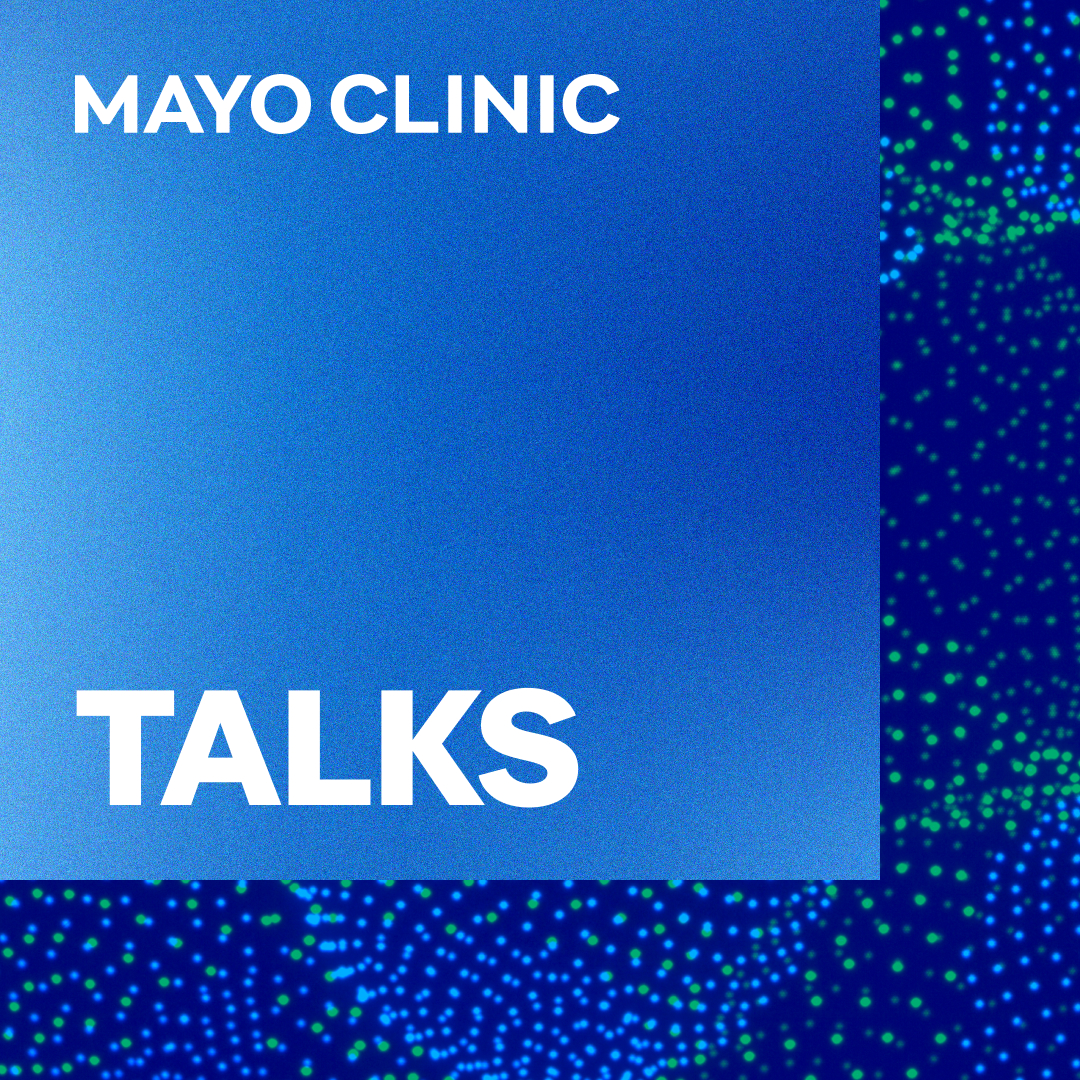 Mayo Clinic Talks is a weekly podcast show for healthcare professionals in primary care and all specialties. Podcasting offers succinct, relevant, accessible, and practical medical information which is useful for the primary care professional. The episodes in this course reflect commonly seen health problems in a primary care practice and other topics of interest. Mayo Clinic professionals from numerous medical specialties join as podcast guests covering an extremely wide variety of pertinent medical topics. Each podcast is succinct, kept to 20-30 minutes, allowing the busy healthcare professional to obtain useful information efficiently. Listen to the episode on the specific episode page or by using your favorite podcast app.
Mayo Clinic Talks is a weekly podcast show for healthcare professionals in primary care and all specialties. Podcasting offers succinct, relevant, accessible, and practical medical information which is useful for the primary care professional. The episodes in this course reflect commonly seen health problems in a primary care practice and other topics of interest. Mayo Clinic professionals from numerous medical specialties join as podcast guests covering an extremely wide variety of pertinent medical topics. Each podcast is succinct, kept to 20-30 minutes, allowing the busy healthcare professional to obtain useful information efficiently. Listen to the episode on the specific episode page or by using your favorite podcast app.
